- 15 Offbeat Digital Nomad Destinations You Need to Visit Now
- Cancun vs. Tulum - Which Should You Visit Next?
- How to Play Video Games as You Travel the World
- 21 Unusual Places to Visit in Poland You Must See
- The Best Cenotes in the Riviera Maya
- The 7 Best Vacation Destinations for Nature Lovers
- Work With Us

Can I Buy Travel Insurance If I’m Already Abroad?
Already overseas and forgot to buy travel insurance before you left?
Has your travel insurance run out while you’re on vacation and you want to extend your stay or, heading to an area where it might be a really, really good idea to have travel insurance and you never bothered to buy any before? No matter the reason, buying travel insurance while you’re already abroad happens a lot more often than you’d think.
If you find yourself without travel insurance, and you’re already on the open road, don’t worry, we have the solution.
Can I buy travel insurance if I’m already abroad?
Whether you’re a classic procrastinator and forgot, or if your travel plans have changed: the good news is you can probably get travel insurance when already abroad for the remainder of your trip. Even better, the coverage you get will likely be similar to a policy you’d have purchased before you left.
This is important : No matter which policy you buy, you won’t be covered for injuries or accidents that happened before you buy your policy. So waiting until you’re on the way to the hospital isn’t the best time to buy travel insurance.
Not all travel insurance companies offer travel insurance if you’re already out of the country. In fact, many require that you haven’t already left on your trip. That said, there are some companies that let you get travel insurance after departure.
World Nomads
Safetywing nomads insurance.
SafetyWing Nomad Insurance offers flexible medical insurance while traveling.
If you’re on a budget, SafetyWing lets travelers pay for insurance on a monthly basis, as opposed to all at once in the beginning.
Travel medical coverage starts from $42/4 weeks.
You can buy Nomad Insurance from SafetyWing in 180 countries. You can also by it while already traveling, in case you forgot to purchase insurance before leaving on your trip.
Learn more about SafetyWing Nomad Insurance here.
Waiting periods before coverage starts
Some insurers have a waiting period before coverage starts, which is usually just a few days, before your travel insurance coverage takes effect. This is more common for Australian and New Zealand companies, but we’ve also heard it happens with Canadian, UK and US companies. So, the answer to “Can you get travel insurance when already abroad?” is yes, but you may have to wait a few days.
If you get sick or have an accident during this waiting period, you likely won’t be covered. Insurance companies add this waiting period to protect themselves from fraud from people who’ve gotten sick or injured, and then buy insurance to cover the now existing injury or illness.
That said, check your policy because some insurers have a waiting period, but they’ll also cover you for emergency overseas medical expenses and emergency transport expenses for a sudden illness or serious injury that results from an accident during that waiting period. Every travel insurance company handles the waiting period differently, so talk with your travel insurance agent to see what they do and don’t cover during this waiting period.
Travel insurance coverage for people already abroad
Just like regular travel insurance, the costs and what’s covered under your policy varies a lot for travel insurance if you’re already overseas.
The exact eligibility requirements to buy travel insurance after departure, and cover you get, will depend on the specific insurer you choose for post departure travel insurance. Talk to an insurance agent to make sure you’re covered for every activity you plan on doing while you travel. The best travel insurance for backpackers can include insurance for standard backpacker activities like snorkeling, and hiking, but always make sure your plan includes the activities you’re interested in!
Depending on the travel insurance company you choose, age limits may apply. This is common for both standard travel insurance, as well as health insurance you buy when already on a trip. There are some travel insurance policies with no age limit, but some insurance policies have age limits as low as under 60 years of age. Read the fine print to make sure you qualify.
Pre-existing medical conditions
Just like standard travel insurance, depending on the plan you choose, you may also not be covered for pre-existing medical conditions. Of course this depends on your policy, as some travel insurance policies do cover some pre-existing medical conditions like stable high blood pressure.
It’s very important that no matter whether you’re buying your travel insurance before you leave or while you’re already on the road, to always tell your travel insurer about any pre-existing medical conditions when you buy your policy. Otherwise, you might be surprised when you submit your bills that they’re declined.
If you’re over the age of 60, pre-existing conditions get more common, and also more complex. We get a lot of questions from Canadian seniors heading south in the winter (called snowbirds) about pre-existing conditions and travel insurance. However, any good snowbird travel insurance coverage should include pre-existing conditions – just be sure to check your policy to make sure that you’re covered.
Tip: Always check your travel insurance policy to know exactly what your coverage offers, and if there are any exemptions. At the end of the day, your policy is your contract and generally supersedes everything else.
It’s probably non-refundable
Of course, each insurer is different, buy many travel insurers don’t offer you a cooling off period if you buy travel insurance once you’ve already left your home country. Instead, these policies are typically non-refundable. If you have any doubt, check your own policy to make sure.
Need some more help?
Have you ever wondered “ do I need travel insurance “?
If you’re a Canadian, and looking for travel insurance, check out our Canadian travel insurance review .
Have you bought travel insurance whilst already abroad? Let us know in the comments – we’d love to hear from you!
Super helpful info! I wonder why companies make it so difficult to get insurance once your’re abroad. Sadly could have saved over $100CAD by getting it when I was still in Canada, but plans change. Thanks for this info 🙂
Lynne, they probably do that to make sure you aren’t already hurt once abroad. They know that if you’re still in Canada you’ll likely get it taken care of here for free but they have no way of knowing that you didn’t hurt yourself once you were gone and wanted to now get travel insurance to cover you not getting it in the first place.
Hello, I am a healthy 70 year old Canadian and forgot to get travel health insurance before flying to Florida. I would like to get insurance for approximately 46 days. Can you please recommend companies that will do this. Many thanks
Leave a Reply Cancel reply
Your email address will not be published. Required fields are marked *
This site uses Akismet to reduce spam. Learn how your comment data is processed .
Winter is here! Check out the winter wonderlands at these 5 amazing winter destinations in Montana
- Plan Your Trip
- Safety & Insurance
How To Get Travel Insurance When Already Abroad
Published: December 18, 2023
Modified: December 28, 2023
by Kellsie Ayala
- Sustainability
- Travel Tips
Introduction
Traveling abroad can be an exhilarating experience, offering the opportunity to explore new cultures, savor exotic cuisines, and create lasting memories. However, unforeseen circumstances such as medical emergencies, trip cancellations, or lost luggage can disrupt the joy of traveling. This is where travel insurance comes to the rescue, providing peace of mind and financial protection against unexpected events.
Whether you forgot to purchase travel insurance before embarking on your journey or your current policy is about to expire, acquiring travel insurance while already abroad is indeed possible. While the process may seem daunting, with the right approach and understanding, you can secure the coverage you need to continue your travels with confidence.
In this guide, we will delve into the intricacies of obtaining travel insurance while already abroad. From understanding the nuances of travel insurance to researching and comparing available options, contacting insurance providers, and ultimately purchasing the most suitable policy, we will navigate through the essential steps to help you safeguard your travels.
So, if you find yourself in need of travel insurance while already abroad, fear not. By following the guidance outlined in this article, you can effectively address this need and ensure that your adventures continue to unfold smoothly and securely.
Understanding Travel Insurance
Before delving into the process of obtaining travel insurance while abroad, it’s crucial to grasp the fundamental concepts of travel insurance. Travel insurance is designed to mitigate financial risks associated with traveling, offering coverage for a wide array of unforeseen events. These may include medical emergencies, trip cancellations or interruptions, lost or delayed baggage, and even emergency evacuation and repatriation.
When seeking travel insurance, it’s essential to consider the different types of coverage available. Medical coverage ensures that you receive necessary medical treatment in the event of illness or injury while traveling. Trip cancellation and interruption coverage provides reimbursement for non-refundable trip expenses if your trip is canceled or cut short due to covered reasons, such as illness, severe weather, or other unforeseen events. Additionally, baggage and personal belongings coverage offers protection against loss, damage, or theft of luggage and personal items during your travels.
Furthermore, it’s imperative to understand the limitations and exclusions of travel insurance policies. Pre-existing medical conditions, high-risk activities, and travel to certain countries may not be covered by standard policies. Therefore, carefully reviewing the policy details and consulting with insurance providers is crucial to ensure that you have a comprehensive understanding of the coverage you require.
By comprehending the intricacies of travel insurance, you can make informed decisions when evaluating available options and selecting the most suitable policy for your specific needs. With this foundational knowledge, you can confidently proceed to the next steps of researching and acquiring travel insurance while already abroad.
Researching and Comparing Options
When seeking travel insurance while already abroad, thorough research and comparison are essential to identify the most suitable coverage for your specific requirements. Begin by exploring reputable insurance providers that offer policies designed for individuals in your current situation. Online resources, including insurance company websites and independent insurance comparison platforms, can serve as valuable tools for gathering information and comparing available options.
As you delve into your research, consider the following factors to guide your decision-making process:
- Coverage Benefits: Evaluate the extent of coverage offered by each policy, considering aspects such as medical expenses, trip cancellation/interruption, baggage loss/delay, and emergency assistance services.
- Policy Exclusions: Take note of any exclusions or limitations within the policies, ensuring that the coverage aligns with your specific travel circumstances and activities.
- Claims Process: Review the claims process for each policy, including the ease of filing a claim and the responsiveness of the insurance provider in handling claims.
- Customer Reviews: Seek insights from other travelers by reading customer reviews and testimonials regarding their experiences with the insurance providers and the effectiveness of the coverage provided.
Furthermore, consider reaching out to fellow travelers or expatriates who may have encountered similar situations and can offer recommendations based on their firsthand experiences. Their insights can provide valuable guidance in navigating the complexities of obtaining travel insurance while abroad.
By diligently researching and comparing the available options, you can make an informed decision that aligns with your specific needs and preferences. This proactive approach lays the groundwork for securing the most suitable travel insurance policy to safeguard your adventures while abroad.
Contacting Insurance Providers
Once you’ve identified potential insurance options through thorough research, the next step is to initiate direct contact with the insurance providers. While this may seem daunting, especially when navigating different time zones and language barriers, it is a pivotal stage in the process of obtaining travel insurance while already abroad.
When reaching out to insurance providers, consider the following approaches to streamline the communication and gather essential information:
- Utilize Online Communication Channels: Many insurance providers offer online chat support or email correspondence, enabling you to initiate contact regardless of your current location. Utilizing these channels can facilitate efficient communication and provide written documentation of the exchange for future reference.
- Seek Clarification on Policy Details: Engage in detailed discussions with the insurance representatives to gain clarity on policy inclusions, exclusions, coverage limits, and any additional considerations specific to your situation. This ensures that you have a comprehensive understanding of the policy before making a purchase decision.
- Inquire About Documentation and Payment Options: Seek guidance on the documentation required to purchase the policy while abroad, as well as the available payment methods that align with your accessibility and preferences.
- Request Assistance in Multiple Languages: If language barriers pose a challenge, inquire about the availability of multilingual support to facilitate effective communication and ensure that all policy details are clearly understood.
By proactively contacting insurance providers and engaging in open dialogue, you can address any concerns or uncertainties related to obtaining travel insurance while abroad. This direct communication also allows you to assess the responsiveness and customer service quality of the insurance providers, which can be indicative of the support you may receive throughout the coverage period.
Ultimately, by establishing clear and effective communication with the insurance providers, you can navigate the process of acquiring travel insurance while already abroad with confidence and clarity.
Purchasing Travel Insurance
After conducting thorough research, comparing available options, and establishing direct communication with insurance providers, the final step is to proceed with the purchase of travel insurance while already abroad. This pivotal stage requires careful consideration and attention to detail to ensure a seamless and secure acquisition of the desired coverage.
When preparing to purchase travel insurance while abroad, consider the following essential steps:
- Review and Confirm Policy Details: Prior to making the purchase, meticulously review the policy details provided by the insurance provider, ensuring that it aligns with your specific travel needs and offers the desired level of coverage.
- Verify Documentation Requirements: Clarify the documentation required to complete the purchase process, such as identification documents, proof of travel itinerary, and any additional forms or declarations necessary for policy issuance.
- Secure Payment and Confirmation: Explore the available payment methods accepted by the insurance provider and ensure that the transaction can be securely processed from your current location. Upon completing the payment, obtain confirmation of the policy purchase and retain the documentation for your records.
- Accessible Policy Information: Ensure that you have convenient access to the policy details, including coverage documents, emergency contact information, and relevant policy numbers, through digital or printed formats for easy reference during your travels.
Additionally, it’s advisable to maintain open communication with the insurance provider throughout the purchase process, seeking clarification on any uncertainties and confirming the effective date and duration of the coverage to align with your travel plans.
By diligently adhering to these steps and exercising vigilance in the purchase process, you can secure the necessary travel insurance while already abroad, providing invaluable peace of mind and protection against unforeseen events throughout your journey.
Acquiring travel insurance while already abroad may initially seem like a complex endeavor, but with a systematic approach and understanding of the essential steps involved, it becomes an achievable task. Throughout this guide, we have explored the intricacies of obtaining travel insurance in such circumstances, from understanding the fundamental aspects of travel insurance to researching, comparing options, contacting insurance providers, and ultimately making the purchase.
By comprehending the nuances of travel insurance and the diverse coverage options available, you can make informed decisions that align with your specific travel needs and preferences. Thorough research and comparison of insurance policies enable you to identify the most suitable coverage, while direct communication with insurance providers ensures that you have a comprehensive understanding of the policy details and purchase process.
As you navigate the process of purchasing travel insurance while already abroad, it’s essential to remain vigilant and proactive, seeking clarity on policy inclusions, exclusions, documentation requirements, and payment processes. This proactive approach not only facilitates a smooth acquisition of travel insurance but also instills confidence in the coverage obtained, allowing you to focus on enjoying your travels without undue worry.
Ultimately, the ability to secure travel insurance while already abroad empowers travelers to address unforeseen risks and unexpected events with resilience and financial protection. By following the guidance outlined in this article, individuals can navigate this process with confidence, ensuring that their adventures continue to unfold smoothly and securely.
So, whether you find yourself amidst the bustling streets of a foreign city or amidst the serene landscapes of a distant land, remember that obtaining travel insurance while already abroad is indeed feasible, and with the right approach, it can enhance your travel experiences with peace of mind and security.

- Privacy Overview
- Strictly Necessary Cookies
This website uses cookies so that we can provide you with the best user experience possible. Cookie information is stored in your browser and performs functions such as recognising you when you return to our website and helping our team to understand which sections of the website you find most interesting and useful.
Strictly Necessary Cookie should be enabled at all times so that we can save your preferences for cookie settings.
If you disable this cookie, we will not be able to save your preferences. This means that every time you visit this website you will need to enable or disable cookies again.
- Best overall
- Best for exotic trips
- Best for trip interruption
- Best for family coverage
- Best for long trips
How we reviewed international travel insurance companies
Best international travel insurance for april 2024.
Affiliate links for the products on this page are from partners that compensate us (see our advertiser disclosure with our list of partners for more details). However, our opinions are our own. See how we rate insurance products to write unbiased product reviews.
If you're planning your next vacation or trip out of the country, be sure to factor in travel insurance. Unexpected medical emergencies when traveling can drain your bank account, especially when you're traveling internationally. The best travel insurance companies for international travel can step in to provide you with peace of mind and financial protection while you're abroad.
Best overall: Allianz
- Check mark icon A check mark. It indicates a confirmation of your intended interaction. Good option for frequent travelers thanks to its annual multi-trip policies
- Check mark icon A check mark. It indicates a confirmation of your intended interaction. Doesn't increase premium for trips longer than 30 days, meaning it could be one of the more affordable options for a long trip
- Check mark icon A check mark. It indicates a confirmation of your intended interaction. Some plans include free coverage for children 17 and under
- Check mark icon A check mark. It indicates a confirmation of your intended interaction. Concierge included with some plans
- con icon Two crossed lines that form an 'X'. Coverage for medical emergency is lower than some competitors' policies
- con icon Two crossed lines that form an 'X'. Plans don't include coverage contact sports and high-altitude activities
- Single and multi-trip plans available
- Trip cancellation and interruption coverage starting at up to $10,000 (higher limits with more expensive plans)
- Preexisting medical condition coverage available with some plans
Allianz Travel Insurance offers the ultimate customizable coverage for international trips, whether you're a frequent jetsetter or an occasional traveler. You can choose from an a la carte of single or multi-trip plans, as well as add-ons, including rental car damage, cancel for any reason (CFAR) , adventure sport, and business travel coverage. And with affordable pricing compared to competitors, Allianz is a budget-friendly choice for your international travel insurance needs.
The icing on the cake is Allyz TraveSmart, Allainz's highly-rated mobile app, which has an average rating of 4.4 out of five stars on the Google Play store across over 2,600 reviews and 4.8 out of five stars from over 22,000 reviews on the Apple app store. So, you can rest easy knowing that you can access your policy and file claims anywhere in the world without a hassle.
Read our Allianz travel insurance review here.
Best for exotic trips: World Nomads
- Check mark icon A check mark. It indicates a confirmation of your intended interaction. Coverage for 200+ activities like skiing, surfing, and rock climbing
- Check mark icon A check mark. It indicates a confirmation of your intended interaction. Only two plans to choose from, making it simple to find the right option
- Check mark icon A check mark. It indicates a confirmation of your intended interaction. You can purchase coverage even after your trip has started
- con icon Two crossed lines that form an 'X'. If your trip costs more than $10,000, you may want to choose other insurance because trip protection is capped at up to $10,000 (for the Explorer plan)
- con icon Two crossed lines that form an 'X'. Doesn't offer coverage for travelers older than 70
- con icon Two crossed lines that form an 'X'. No Cancel for Any Reason (CFAR) option
- Coverage for 150+ activities and sports
- 2 plans: Standard and Explorer
- Trip protection for up to $10,000
- Emergency medical insurance of up to $100,000
- Emergency evacuation coverage for up to $500,000
- Coverage to protect your items (up to $3,000)
World Nomads Travel Insurance offers coverage for over 150 specific activities, so you can focus on the adventure without worrying about gaps in your coverage.
You can select its budget-friendly standard plan, starting at $79. Or if you're an adrenaline junkie seeking more thrills, you can opt for the World Nomads' Explorer plan for $120, which includes extra sports like skydiving, scuba diving, and heli-skiing. And World Nomads offers 24/7 assistance, so you can confidently travel abroad, knowing that help is just a phone call away.
Read our World Nomads travel insurance review here.
Best for trip interruption: C&F Travel Insured
- Check mark icon A check mark. It indicates a confirmation of your intended interaction. Offers 2 major plans including CFAR coverage on the more expensive option
- Check mark icon A check mark. It indicates a confirmation of your intended interaction. Cancellation for job loss included as a covered reason for trip cancellation/interruption (does not require CFAR coverage to qualify)
- Check mark icon A check mark. It indicates a confirmation of your intended interaction. Frequent traveler reward included in both policies
- Check mark icon A check mark. It indicates a confirmation of your intended interaction. Up to $1 million in medical evacuation coverage available
- con icon Two crossed lines that form an 'X'. Medical coverage is only $100,000
- con icon Two crossed lines that form an 'X'. Reviews on claims processing indicate ongoing issues
- C&F's Travel Insured policies allow travelers customize travel insurance to fit their specific needs. Frequent travelers may benefit from purchasing an annual travel insurance plan, then adding on CFAR coverage for any portions of travel that may incur greater risk.
C&F Travel Insured offers 100% coverage for trip cancellation, up to 150% for trip interruption, and reimbursement for up to 75% of your non-refundable travel costs with select plans. This means you don't have to worry about losing your hard-earned money on non-refundable travel costs if your trip ends prematurely.
Travel Insured also stands out for its extensive "reasons for cancellation" coverage. Unlike many insurers, the company covers hurricane warnings from the National Oceanic and Atmospheric Administration (NOAA).
Read our Travel Insured review here.
Best for family coverage: Travelex
Trip cancellation coverage for up to 100% of the trip cost and trip interruption coverage for up to 150% of the trip cost
- Check mark icon A check mark. It indicates a confirmation of your intended interaction. Options to cover sports equipment
- Check mark icon A check mark. It indicates a confirmation of your intended interaction. Option to increase medical coverage
- Check mark icon A check mark. It indicates a confirmation of your intended interaction. Can cancel up to 48 hours before travel when CFAR option is purchased
- Check mark icon A check mark. It indicates a confirmation of your intended interaction. Affordable coverage for budget-conscious travelers
- Check mark icon A check mark. It indicates a confirmation of your intended interaction. Includes generous baggage delay, loss and trip delay coverage
- Check mark icon A check mark. It indicates a confirmation of your intended interaction. Optional "adventure sports" bundle available for riskier activities
- con icon Two crossed lines that form an 'X'. Only two insurance plans to choose from
- con icon Two crossed lines that form an 'X'. Medical coverage maximum is low at up to $50,000 per person
- con icon Two crossed lines that form an 'X'. Pricier than some competitors with lower coverage ceilings
- con icon Two crossed lines that form an 'X'. Some competitors offer higher medical emergency coverage
Travelex travel insurance is one of the largest travel insurance providers in the US providing domestic and international coverage options. It offers a basic, select, and America option. Read on to learn more.
- Optional CFAR insurance available with the Travel Select plan
- Trip delay insurance starting at $500 with the Travel Basic plan
- Emergency medical and dental coverage starting at $15,000
Travelex Travel Insurance offers coverage for your whole crew, perfect for when you're planning a family trip. Its family plan insures all your children 17 and under at no additional cost. The travel insurance provider also offers add-ons like adventure sports and car rental collision coverage to protect your family under any circumstance. Got pets? With Travelex's Travel Select plan, you can also get coverage for your furry friend's emergency medical and transportation expenses.
Read our Travelex insurance review here.
Best for long trips: Seven Corners
- Check mark icon A check mark. It indicates a confirmation of your intended interaction. Diverse coverage options such as CFAR, optional sports equipment coverage, etc.
- Check mark icon A check mark. It indicates a confirmation of your intended interaction. Available in all 50 states
- con icon Two crossed lines that form an 'X'. Prices are higher than many competitors
- con icon Two crossed lines that form an 'X'. Reviews around claims processing are mixed
- Trip cancellation insurance of up to 100% of the trip cost
- Trip interruption insurance of up to 150% of the trip cost
- Cancel for any reason (CFAR) insurance available
Seven Corners Travel Insurance offers specialized coverage that the standard short-term travel insurance policy won't provide, which is helpful if you're embarking on a long-term trip. You can choose from several plans, including the Annual Multi-Trip plan, which provides medical coverage for multiple international trips for up to 364 days. This policy also offers COVID-19 medical and evacuation coverage up to $1 million.
You also get the added benefit of incidental expense coverage. This policy will cover remote health-related services and information, treatment of injury or illness, and live consultations via telecommunication.
Read our Seven Corners travel insurance review here.
How to find the right international travel insurance company
Different travelers and trips require different types of insurance coverage. So, consider these tips if you're in the market to insure your trip.
Determine your needs
- Consider the nature of your travel (leisure, business, or adventure) and the associated risks (medical emergencies, trip cancellations, etc.).
- Determine your budget and the amount of coverage you require.
- Consider the duration of your trip and the countries you'll be visiting, as some policies won't cover specific destinations.
Research the reputation of the company
- Look for the company's reviews and ratings from reputable sources like consumer advocacy groups and independent website reviews.
- Check the provider's financial stability and credit ratings to ensure it can pay out claims reliably.
- Investigate the company's claims process to ensure it can provide timely support if you need to file a claim.
Compare prices
- Get quotes from multiple providers to compare rates and coverage options.
- See if the company provides discounts or special offers to lower your cost.
- Look at the deductible or any out-of-pocket expenses you may have to pay if you file a claim to determine if you can afford it.
Understanding international travel insurance coverage options
Travel insurance can be confusing, but we're here to simplify it for you. We'll break down the industry's jargon to help you understand what travel insurance covers to help you decide what your policy needs. Bear in mind that exclusions and limitations for your age and destination may apply.
Finding the best price for international travel insurance
Your policy cost will depend on several factors, such as the length of your trip, destination, coverage limits, and age. Typically, a comprehensive policy includes travel cancellation coverage costs between 5% and 10% of your total trip cost.
If you're planning an international trip that costs $4,500, you can expect to pay anywhere from $225 to $450 for your policy. Comparing quotes from multiple providers can help you find a budget-friendly travel insurance policy that meets your needs.
We ranked and assigned superlatives to the best travel insurance companies based on our insurance rating methodology . It focuses on several key factors, including:
- Policy types: We analyzed company offerings such as coverage levels, exclusions, and policy upgrades, taking note of providers that offer a range of travel-related issues beyond the standard coverages.
- Affordability: We recognize that cheap premiums don't necessarily equate to sufficient coverage. So, we seek providers that offer competitive rates with comprehensive policies and quality customer service. We also call out any discounts or special offers available.
- Flexibility: Travel insurance isn't one-size-fits-all. We highlight providers that offer a wide array of coverage options, including single-trip, multi-trip, and long-term policies.
- Claims handling: The claims process should be pain-free for policyholders. We seek providers that offer a streamlined process via online claims filing and a track record of handling claims fairly and efficiently.
- Quality customer service: Good customer service is as important as affordability and flexibility. We highlight companies that offer 24/7 assistance and have a strong record of customer service responsiveness.
We consult user feedback and reviews to determine how each company fares in each category. We also check the provider's financial rating and volume of complaints via third-party rating agencies.
The best insurance policy depends on your individual situation, including your destination and budget. However, popular options include Allianz Travel Insurance, World Nomads, and Travel Guard.
International health insurance and travel insurance serve different purposes. While both may cover medical expenses, international health insurance provides long-term health insurance for working abroad. Meanwhile, travel insurance offers short-term coverage for the duration of your trip.
Typically, your regular health insurance won't cover you out of the country, so you'll want to make sure your travel insurance has adequate medical emergency coverage. Depending on your travel plans, you may want to purchase add-ons, such as adventure sports coverage, if you're planning on doing anything adventurous like bungee jumping.
Travel insurance is worth the price for international travel because they're generally more expensive, so you have more to lose. Additionally, your regular health insurance won't cover you in other countries, so without travel insurance, you'll end up paying out of pocket for any emergency medical care you receive out of the US.
- Main content

- GENERAL TRAVEL

Health Insurance Abroad: The Complete Guide

The GoAbroad Writing Team is a collection of international travel writers with decades of experie...
- Before You Go
- Health & Safety Tips
- button]:border-none [&>button]:bg-white [&>button]:hover:cursor-pointer [&>button]:hover:text-cyan-400"> button]:hover:text-cyan-400 [&>button]:bg-white hover:cursor-pointer" height="1em" width="1em" xmlns="http://www.w3.org/2000/svg">
Going abroad for the first time without your family can be thrilling, yet simultaneously terrifying. The same can be said for the second, third, and tenth time. Are you 30 and planning for a volunteer trip overseas? It’s still scary, and that’s okay!
On the cusp of any international travel—short- or long-term—it’s normal to have an imminent feeling of the unknown and unexpected weighing down on your mind. As much as I’d love to tell any future adventurer to look to toward the horizon, ignore the risks and gallop off into the Icelandic sunset on a miniature fluffy horse, the fact is that that’s just awful advice to give. The better piece of advice is plain and simple: Cover your hiney with health insurance abroad.
Traveling to Asia? Get Covered with the Luma ASEAN Pass

No matter the adventure, don’t leave without securing medical insurance abroad!
No matter your age, international travel experience, destination, or purpose for venturing abroad—be it studying, volunteering, teaching, interning, or otherwise—there are very real risks that need to be acknowledged and properly prepared for before you head overseas. While packing your life away for a study abroad trip and raising funds for a volunteer stint abroad are pretty important, your medical insurance abroad carries the most significant weight. Forgetting a hairbrush or not having enough money for a daily gelato is a bummer, but not having health insurance coverage abroad when tragedy strikes can have lifelong consequences.
Travelers, parents, and other family members alike can be comforted by the knowledge that there are comprehensive coverage packages out there customizable for any type of travel abroad—from teaching in China to snorkeling at the Great Barrier Reef. And just like that, taking the first step out into the Barcelona cobblestoned street doesn’t seem so intimidating! You’re covered.
In this comprehensive guide to health insurance while abroad, you’ll learn the ins and outs of…
- An overview of medical insurance abroad
- How your destination influences your coverage
- Using an existing domestic plan overseas
- What’s covered in international health insurance
- Difference between travel insurance and international medical insurance
- What to do if an emergency happens abroad
- Insurance abroad considerations for types of travel
- Suggested insurance providers
If you’ve been ignoring the nitty-gritty logistics of traveling abroad, then this guide to health insurance abroad will cover everything you need to know. Let’s get started!
The rundown of medical insurance abroad

Even if you don’t plan on skiing in Austria—or anywhere—during your travels, stay safe by having health insurance coverage abroad.
In the unusual case that you’ve already mastered how your domestic insurance and healthcare system works at home, that’s great! It won’t be of much help here, however. With a spectrum of healthcare systems around the world and third-party insurance providers working as middlemen to make it all easier to understand, that Thai snack of grasshoppers isn’t the only foreign concept on the table.
Generally, medical insurance abroad covers whichever dates you want, ranging from a day to a year and more. As health and finances are inarguably some of the most important assets we have, finding the correct health insurance while abroad should be a priority. Because it’s a preventative service, it’s easy to consider it an afterthought and not budget sufficiently for an adequate policy. Just remember, insurance abroad should be one of the top items on your travel list!
All your insurance abroad travel questions answered
The world of insurance is complicated enough, and throwing “international” into the mix makes it all the more confusing. How’s one to know about insurance abroad without having spending hours making phone calls to countless companies and embassies? We got the answers to your questions.
1. Do I need health insurance while traveling internationally?
Just like at home, health insurance helps pays for medical attention ranging from emergency room visits to prescription drugs. Internationally, you may face additional challenges as a foreign national that health insurance coverage abroad will help face, such as emergency evacuation or exorbitant healthcare costs if not covered. Apart from the fact that many travel programs or visas require some degree of coverage, having a safety net while traveling is always a good idea .
Our recommendation is Lewerglobal . Whether traveling for business, pleasure, or education, Lewerglobal provides the protection and support you need to travel with confidence. Find peace of mind for your short-term holiday, year-long internship, or four-year degree program. Lewerglobal members can choose a variety of health, travel, and trip protection plans to meet any budget and itinerary!
[ Browse All Providers of Medical Coverage Abroad ]
2. does my travel destination make a difference.
Yes! Your destination country or countries can impact what kind of health insurance coverage abroad you need and if you need it at all. For example, U.S. citizens whose long-term travels take them to countries in the Schengen area will need a certain amount of insurance coverage to qualify for a visa after the 90-day tourist visa period is up. Most countries in Western Europe are in the Schengen area , including Spain, France, Germany, and Italy.
Those who aren’t U.S. citizens may need insurance coverage to apply for a visa just to enter the area to begin with. For either case, there are specific stipulations for the holiday health insurance abroad to qualify for a Schengen area visa. Amongst other requirements, the insurance must cover a certain amount of Euros and should be valid for the applicant’s length of stay.
Other countries requiring proof of health insurance before entry are Cuba, Antarctica, and the United Arab Emirates. Before securing a generic health insurance abroad, be absolutely sure that your destination countries’ insurance requirements are met. Otherwise, your coverage may be all for nothing!
[ Get 6 FREE Travel Program Recommendations ]
3. does my health insurance cover international travel.
Depending on your domestic insurance, you may have some coverage abroad for basic short-term trips in some countries. However, more often than not, you’re looking at limited coverage, higher deductibles, and higher minimums to pay if an emergency does arise. For Medicare recipients, there is generally no coverage outside of the U.S. and its territories.
Before purchasing insurance abroad, check in with your current health insurance provider to be sure you’re not getting double coverage!

Health insurance comes in handy if you need to visit a doctor or clinic on your travels.
4. What does insurance abroad cover?
Medical insurance abroad alone typically covers anything from emergency doctor visits to lab orders to emergency surgeries to dental care for pain relief. Although often included, emergency evacuation and repatriation of remains (return of a body if passed away) are considered separate line items. When reading through policy coverage, be sure these basic services are included, as well as others like emergency family travel arrangements in case a family member needs to fly out to the bedside.
For travelers with a chronic illness or preexisting conditions, its essential that a health insurance abroad covers all medical needs and provides for prescription drugs for longer trips. Otherwise, you may be looking at out-of-pocket expenses and that’s the last way anyone wants to remember their travels!
5. How much does insurance abroad cost?
Rule of thumb when when choosing an insurance abroad: Don’t shop for the cheapest. A low price isn’t reflective of a good deal, rather it may just hint at a bare boned policy with high deductibles and minimums. Policies can start at a little more than a dollar a day for shorter trips , but ultimately, travel health insurance cost is determined by these factors:
- Limit of coverage, amount of deductible, and add-ons (i.e. ski insurance)
- Traveler’s age
- Duration of travel
After you have an idea of the coverage your travels and your health condition requires, the fun part begins. Shopping! Medical insurance websites include an option for a free quote, so you can get a fairly good idea of cost and the policy breakdown before you commit.
[ Get Even More Travel Medical Insurance Advice ]
6. what’s the difference between travel insurance and medical insurance abroad.
After doing a bit of research you may have come across insurance abroad, travel insurance, and international medical coverage. What’s the difference? Sometimes these variations are combined into comprehensive packages. Let’s break down common types of coverages:
- Trip insurance or travel cancellation insurance: This type compensates for lost, stolen, or damaged luggage while in transit and for unplanned trip cancellations in stated circumstances, such as a relative passing away.
- Medical evacuation and repatriation: If you need to get transported to a hospital or even airlifted to seek special emergency care, then evacuation coverage has got your back. Repatriation also makes sure you can get paid to back home for special care in unforeseen circumstances.
- Emergency medical expenses: When generally thinking of medical insurance abroad, this kind of coverage is most commonly referenced. Avoid paying medical bills by making sure you have an adequate coverage for medical expenses.

Travel worry-free for flight delays, lost luggage, and other inconveniences—your insurance will have your back!
7. Who do you contact if you need medical attention?
First and foremost, after purchasing a suitable medical insurance abroad you need to print out your policy (if you don’t receive a physical card) and carry it on your person at all times. Having a claim form or two printed, saved and ready in a secure place will also save buckets of travel down the road if you’re unable to later. Participants of an organized travel program can also get assistance from program organizers, who may also have a good idea of how to approach medical emergencies in the country.
Every international insurance provider will have a hotline available to contact with country-specific protocol and instructions if you need to seek medical attention. Additionally, the country’s U.S. Embassy provides information on local doctors and hospitals available. Just look for the “American Citizens Services” tab on your country’s U.S. Embassy website .
8. What’s the right type of insurance for my travels (study/intern/work/etc)?
Not all health insurance coverage abroad is made equal. Meaningful travel comes in all lengths and varying degrees of adventure. While some adventure travel may involve extreme sports like scuba diving, a two week volunteer project in a large city is relatively low-key. Be aware of what risks and characteristics your travels entail and make sure you pick up the right plan to cover them.
- Study abroad . With durations ranging from a few weeks to a whole year, study abroad can be confusing when it comes to insurance. Luckily, most study abroad program providers offer comprehensive information on how to get covered, if they don’t already include a plan in the program. ( P.S. Studying abroad with a chronic illness? Read about what you need to know ! )
- Volunteer abroad . The unique characteristic of volunteering abroad is that your horizons are a lot wider, including stays in off-the-beaten path areas and more community integration. As such, infrastructure and access to comprehensive healthcare can be scarce. For volunteers with medical conditions relying on special treatment, look into plans that cover pre-existing conditions and prescription drugs abroad.
- Intern abroad . Organized internship abroad opportunities through third-party programs or universities will often offer insurance abroad for the duration of stay. These plans are already suggested with the internship and destination country in mind, so you don’t have to navigate the confusing world of coverage yourself.
- Teach abroad . One of the perks of teaching English abroad is the medical insurance abroad included in work compensation packages (or at least a partnership with a company to direct you too)! Included insurance policies are a sign of a well-rounded employer and saves a ton of leg-work in the relocation process. Whether the coverage is offered through a third-party recruiting organization or directly by the employing institution abroad, there’s bound to be a preplanned insurance policy available.
- TEFL courses abroad . TEFL courses abroad never last for more than a few months at a time, and as such are easily coverable by normal health insurance abroad. For the time spent abroad learning about grammar games and classroom management, a general international medical insurance should do!
- Gap year . Going abroad through an organization? Then you may already have international insurance coverage included! Students traveling independent can look into youth plans or student-targeted packages.
- Completing a degree abroad . Being a full-time student for multiple years as you complete a degree abroad looks similar to expat insurance. However, students may be able to qualify for a domestic insurance depending on your citizenship and the destination country. The best place to get information is the university’s international office or a health department that’s familiar with insurance for international students.
- High school abroad . Typically, high school students won’t be traveling internationally solo. Teen travel programs should offer insurance as a part of the deal, so check in with an advisor to be sure what the benefits are.
- Language school . Because many language school courses are short enough to fit into a tourist visa stay and students won’t theoretically be cliff diving, basic international insurance packages are a good fit. Depending on the program, you may be fit for a student insurance type of coverage, specially tailored to your needs.
- Adventure travel . Thinking of bungee jumping in Costa Rica or horseback riding in Mongolia? Because of the “living on the edge”, extreme sports aspect of adventure travel, you’ll need insurance that includes those kinds of riskier activities. Read into the find print and be certain that the kinds of activities you’re interested in are covered.
- Work abroad . Working abroad long-term means needing health insurance coverage abroad will almost certainly be a given. If your employer doesn’t provide it, then look into plans geared toward expats and working professionals.
9. How do I find international travel-specific insurance?
A quick search for “international medical insurance” can yield a good number of reliable sources. Ultimately, quality health insurance abroad comes down to reading the fine print and knowing exactly what you’re getting. The U.S. Department of State provides a list of recommended insurance providers for international travel that’s definitely worth checking out.
Take the scary out of travel abroad with the right international health insurance coverage!

Friends don’t let friends travel without having health insurance while abroad!
Securing a well-rounded health insurance coverage abroad should be one of the first items on that travel checklist ! Even if you don’t have a preexisting condition or need for medical attention while overseas, you can never anticipate emergencies and accidents. Because insurance is often a requirement for travel programs, international visas, and some types of employment abroad, it’s best to start researching ASAP to have a thorough understanding of it works and which plan fits best.
Remember: Even if a medical risk is 0.01%, it’s a real risk that can put you financially in a pickle for your entire life. Get all your ducks in a row, secure an insurance plan, and then go forth to have the time of your life abroad worry-free!
Sign up for GoAbroad’s newsletter for even MORE helpful travel advice
DISCLAIMER: While our site doesn’t feature every company or product available in the market, we aim to be the most comprehensive resource for meaningful travel and provide thoughtful, valuable resources—whether that's written content, programs and travel experiences, or products and services for purchase. Our partners compensate us to promote their products and services. This may influence where those products appear on our site, but the decision to purchase is up to you. We do not represent any of our partners directly, including insurance providers, program providers, and other service providers. For more information, please click here .

Explore Programs on GoAbroad.com
Related Articles

By Charleen Johnson Stoever | 47 minutes ago

By GoAbroad Writing Team | 5 days ago

By Raquel Thoesen | 5 days ago

Popular Searches
Study abroad programs in italy, study abroad programs in spain, marine biology study abroad programs, study environmental studies abroad, fall study abroad 2024, spring study abroad programs, recommended programs.

2566 reviews
International TEFL Academy

1682 reviews
International Volunteer HQ [IVHQ]

1905 reviews
MAXIMO NIVEL

563 reviews
Intern Abroad HQ
For Travelers
Travel resources, for partners.

© Copyright 1998 - 2024 GoAbroad.com ®
- Study Abroad
- Volunteer Abroad
- Intern Abroad
- Teach Abroad
- TEFL Courses
- Degrees Abroad
- High School Abroad
- Language Schools
- Adventure Travel
- Jobs Abroad
- Online Study Abroad
- Online Volunteer Programs
- Online Internships
- Online Language Courses
- Online Teaching Jobs
- Online Jobs
- Online TEFL Courses
- Online Degree Programs
Sunshine Seeker
Dream ◇ Create ◇ Travel
Popular categories, how to buy travel insurance when you’re already abroad (after departure).
By: Charlotte · Last updated 16. November 2023 · In: Travel

Are you wondering whether or not you can buy travel insurance when you’re already abroad ? Fear not, there are a few companies that offer travel insurance that you can buy or extend even after departure. Let’s take a look at a subscription-based travel insurance for digital nomads and long-term travelers.
Watching the sunrise over the clouds looking out the tiny airplane window, you are ecstatic that in just two hours you will reach your next pin on the map. The sun is bright, and the anticipation of all the new experiences your next adventure will bring is keeping you on the edge of your seat. There is just one problem. You can’t help feeling as if you are forgetting something.
Is it my phone? No. My extra camera battery? No. My Passport? No. A quick inspection of your carry-on bag eases your mind, but it’s a feeling that just won’t go away.
Then it finally hits you. You forgot to buy travel insurance before you left. The panic sets in and you think is it too late? I’m already halfway around the globe.
Or you might realize when you’re already abroad that your current insurance only covers a certain amount of days of travel. Been there done that!
Disclosure: I’ve written this SafetyWing Nomad Insurance review to the best of my knowledge and understanding, however, changes to insurance policy terms can happen. Use the information within this article at your own discretion. Before purchasing a policy do your own research and make sure all your personal travel needs are covered!

Article overview
Do I really need travel insurance?
How to choose the right travel insurance, purchase a policy with safetywing, remember to pin this for later 😉, travel insurance when you’re already abroad.
Travel plans can change very quickly. You might fall in love with a person or a place or discover that you’re supposed to live out of a backpack for at least another year.
The ability to make spontaneous decisions on the road is one of the main reasons why many of us love to travel. I live for the feeling of freedom when I don’t have any set plans and know I can go wherever I want whenever I want. However, deciding to extend your time overseas can sometimes be a bit tricky. Especially when it comes to travel insurance.
The good news is that it’s NEVER too late to buy or extend your travel insurance , even when you’re already abroad . The trick is finding the right company to suit you and your travel needs.
While many companies offer travel insurance, a select few let you buy a policy when you’re already abroad or if you don’t know the exact length of your trip. Some of these include World Nomads, True Traveller (for UK residents) and SafetyWing .
One travel insurance you can buy when you’re already abroad is SafetyWing Nomad Insurance . A travel and medical incident insurance built specifically for digital nomads by digital nomads.
At least, that’s my personal choice. SafetyWing is a Norwegian and United States-based company with remote team members all over the globe. They offer exactly the type of coverage needed for long-term travelers and digital nomads, even if you’re already abroad .
SafetyWing says “we’re here to remove the role of geographical borders as a barrier to equal opportunities and freedom for everyone.”
I’m so happy to now know that a company like SafetyWing exists as I’ve wasted so much money in the past on ridiculously expensive plans for long-term travel. When I moved to Indonesia at the beginning of 2019, I had so much trouble finding an insurance provider in Norway willing to cover me over the standard 70 days.
I could literally have saved hundreds of dollars and so much time had I known about SafetyWing back then!
You can find my full review of SafetyWing here .
For those of you who might be thinking, is travel insurance really all that necessary? I’m healthy, young and plan on taking in the sites at a leisurely pace. Or maybe not?
Maybe you are planning on ziplining over the Amazon Rainforest, sand surfing in the Sahara Desert, scuba diving on the Great Barrier Reef or riding in a hot air balloon over Turkey. Either way, the answer is YES!
Travel insurance is always a good idea because the reality is, anything can happen. With the SafetyWing Nomad Insurance (travel and medical insurance), you can have peace of mind that your next adventure is covered. Let’s put it this way if you can’t afford travel insurance you can’t afford to travel!
- Lost luggage: We’ve all known at least one person who has lost their luggage while traveling and what a true nightmare it can be. For a nomad, especially those without a permanent address, your luggage is your lifeline. When traveling away from home, your possessions are everything and being without them can be nerve-wracking. Don’t let the fear of losing luggage stop you from living out your dreams.
- Risky Business: Secretly an adrenaline junkie? If you have an adventure-seeking soul and plan to take in the sights with fast-paced, exhilarating thrill activities, medical coverage is definitely necessary. Safety Wing nomad insurance covers anything from ambulance rides to hospital stays (including intensive care). Some exclusions do apply so make sure to check the fine print on all SafetyWing nomad insurance policies .
- Cough, cough, achoo: Dancing in the rain in Tuscany was 100% worth it, but the cold you got in return will just not go away. In fact, it turns into pretty serious No problem. Safety Wing has you covered. As long as your medical issues do not stem from a pre-existing condition (see policies for more detailed information), you can receive medical care and get back to your adventures as a happy, healthy nomad.
- COVID-19: This is one we can not forget to mention. A new policy for COVID-19 coverage from SafetyWing can be found on their website. Their coverage may include testing and quarantine if deemed necessary by a medical professional. Please check all policies, terms, and conditions for more detailed information.
- Monkey or snake bite: Ok, that’s a little extreme, but you get the point. Anything can happen from natural disasters to political strife and serious injury. Sometimes what you least expect to happen, happens. No one ever wants their travel to abruptly come to an end, but sometimes in severe cases evacuation or relocation is necessary. Having nomad insurance in your back pocket (or your fanny pack) lets your breath easy, knowing that you will be covered if disaster strikes.
- Always read the small print before buying a policy and make sure that everything you might need is covered.
- When you need to renew make sure you are allowed to buy the policy when already traveling. With SafetyWing your insurance automatically extends every 28 days until you pick an end date. It’s just like a subscription so you never have to pay for coverage you don’t need.
- Medical coverage is the most important part of travel insurance, nothing else matters if you don’t have your health. Make sure the policy you buy includes emergency evacuation and repatriation.
- Are you covered in your home country as well? With SafetyWing you keep your medical coverage for 30 days in your home country after being abroad for 90 days. (15 days if your home country is the U.S.)
- Double-check which activities and sports your insurance covers, especially if you are going to be doing things like quad biking, spelunking and white water rafting. You might need to pay extra to include high-risk activities. You can find a list of the sports and activities covered by SafetyWing here .
- If you travel with expensive electronics like a camera or laptop you might need to buy additional coverage. The same goes for expensive clothes and accessories, make sure to check how much the policy you consider covers if your luggage is lost or destroyed.
- It’s often cheaper to exclude the US, so only choose a worldwide policy if you don’t know where you’ll be traveling to or you don’t want to limit yourself.
- Check the deductible (the amount of money that you are responsible for paying toward an insurance claim). The higher the deductible the cheaper the policy, but make sure you can actually afford the deductible.
Convinced yet that you need to acquire travel insurance?
If so, follow this link to the SafetyWing Nomad Insurance page. Here you can easily sign-up and find information on their current insurance policies including Nomad Insurance and Remote Health. Read through the Nomad Insurance specifics , even the small print and decide if SafetyWing covers everything you need in a travel insurance.
The best part about the SafetyWing Nomad Insurance is that it can be customizable to your needs as far as when to start and end. Like a subscription-based service, your insurance will be automatically extended every 28 days.
So, no trying to remember to re-enroll. You can keep exploring without having the nagging feeling that you have forgotten something yet again. Completely focus on your travels with peace of mind that you are covered with SafetyWing Nomad Insurance.
Again, you can find my complete SafetyWing review here where I talk about the positives but also the limitations of the Nomad Insurance.
Have you bought travel insurance when you were already abroad before?
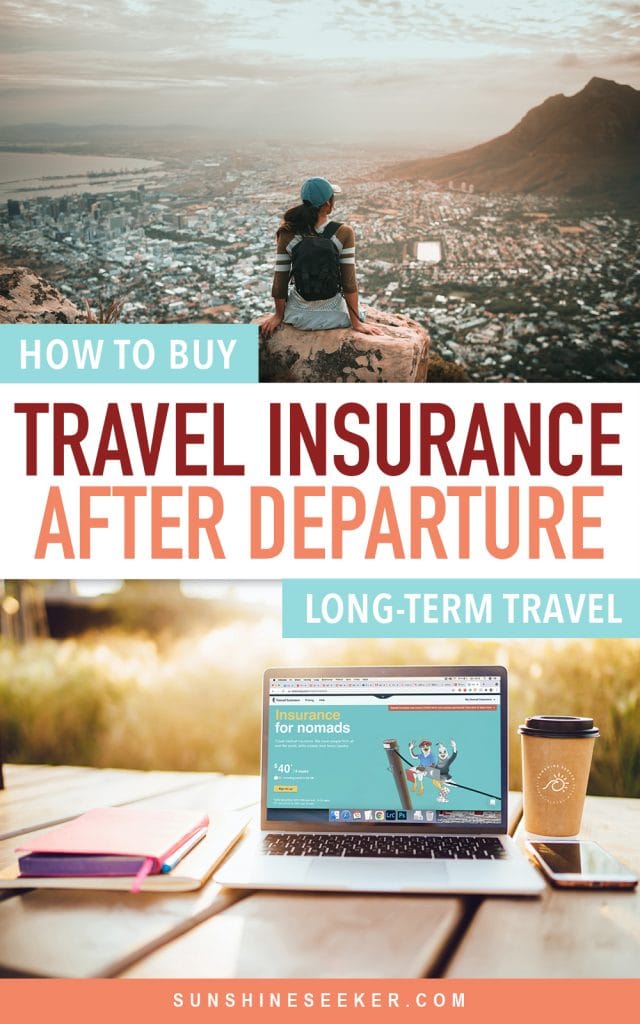
About Charlotte
Charlotte is the passionate traveler and online business coach behind Sunshine Seeker. She started working as a content creator on Instagram in 2014, before social media was even a thing, and as a travel blogger in 2015. Over the past 14 years she has explored 45+ countries and lived in Oslo, Kraków, Bali and Lombok. Every month she helps more than 50,000 people plan their adventures and learn how to create more freedom by working online.
You’ll Also Love

Leave a Reply Cancel reply
Your email address will not be published. Required fields are marked *
Save my name, email, and website in this browser for the next time I comment.

12 hidden gems in Spain that aren’t on your bucket list (but should be)
Join the travel creator club.
Sign up to receive one of my favorite Lightroom presets + my tour/product collab pitch template!
By clicking "SEND" you confirm that you want to join our mailing list and that you have read our Privacy policy .
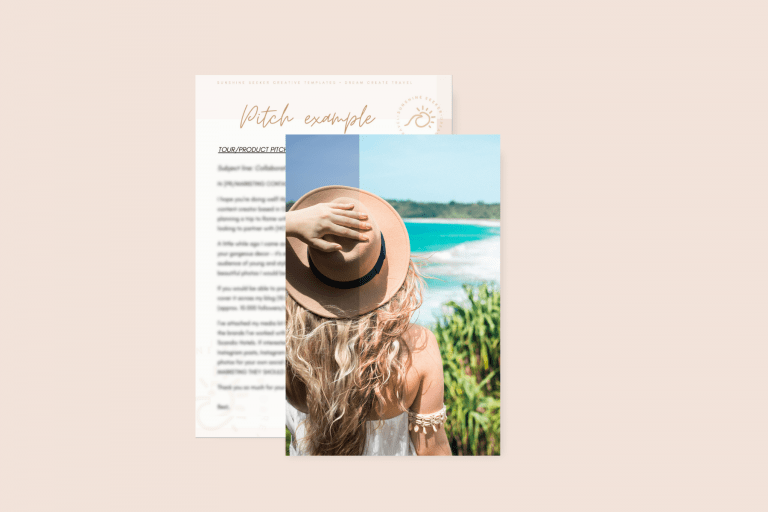
I’m social…sort of!
Join me on Instagram

- Privacy Policy
- Affiliate Disclosure
- Terms & Conditions
As an Amazon Associate, I earn from qualifying purchases.
Copyright © 2024 Sunshine Seeker
- Credit cards
- View all credit cards
- Banking guide
- Loans guide
- Insurance guide
- Personal finance
- View all personal finance
- Small business
- Small business guide
- View all taxes
You’re our first priority. Every time.
We believe everyone should be able to make financial decisions with confidence. And while our site doesn’t feature every company or financial product available on the market, we’re proud that the guidance we offer, the information we provide and the tools we create are objective, independent, straightforward — and free.
So how do we make money? Our partners compensate us. This may influence which products we review and write about (and where those products appear on the site), but it in no way affects our recommendations or advice, which are grounded in thousands of hours of research. Our partners cannot pay us to guarantee favorable reviews of their products or services. Here is a list of our partners .
Can I Buy Travel Insurance After Booking?

Many or all of the products featured here are from our partners who compensate us. This influences which products we write about and where and how the product appears on a page. However, this does not influence our evaluations. Our opinions are our own. Here is a list of our partners and here's how we make money .
Table of Contents
When can you buy travel insurance?
When is the best time to buy travel insurance, when is it too late to buy travel insurance, if you want to buy travel insurance after booking.
When you’re planning a trip away from home, travel insurance provides peace of mind, especially for pricey vacations. Maybe you’ve already started booking a trip and only now realized travel insurance might be a good idea. You may be wondering, “Can I buy travel insurance after booking my trip or purchasing plane tickets?”
The short answer is: Yes, you can.
However, timing is everything when it comes to buying travel insurance — and some options won’t be available if you wait too long. Here's a look at buying travel insurance, the best times to purchase it and when it’s too late to get it.
Depending on what you’re doing, travel insurance can provide coverage for a variety of situations, including medical care, trip delays, lost luggage and even trip cancellation.
If travel insurance is something you’re considering, you’ll want to purchase it sooner rather than later — but not before booking your travel.
Many travel credit cards come with complimentary travel insurance .
Before booking
You won’t want to buy insurance before you book any travel, especially if you aren’t firm on your plans. Policies such as trip cancellation insurance are meant to protect you against nonrefundable losses that you have incurred. If you haven’t booked your travel yet, you won’t know your out-of-pocket costs or how much coverage you’ll need.
After booking
While it’s not recommended to purchase travel insurance before booking travel, you’ll want to do so as soon as your reservations are made. At this point, you can expect to see the greatest number of options to choose from, including Cancel For Any Reason insurance .
It is possible to purchase travel insurance up until the very last minute — most insurance companies will allow you to buy a policy until the day before departure. Keep in mind that your options will be limited if you wait, however, and some benefits such as trip cancellation and interruption may no longer be available.
» Learn more: How to find the best travel insurance
The best time to purchase travel insurance is as soon as your reservations have been made. Waiting a long period of time after booking your trip can make you ineligible for certain types of insurance. Examples of this include:
Pre-existing medical condition insurance. This is time-sensitive insurance and allows for treatment for existing medical conditions if they’re aggravated by travel. You’ll need to be medically fit to travel at the time you purchase this coverage. You must also insure 100% of your trip. Finally, the time period you have to buy the insurance will vary according to the provider; generally, you’ll be expected to purchase this 10 to 21 days after first putting down a deposit.
Cancel For Any Reason insurance. As the name suggests, this insurance allows you to cancel your trip and receive a portion of your nonrefundable costs back, no matter the reason why you’re canceling. Typically, you’ll need to purchase CFAR insurance 10 to 21 days after putting down your initial deposit. Providers may also require you to cancel your trip earlier than 48 to 72 hours before your scheduled departure.
Finally, your ability to buy travel insurance evaporates if you aren’t already covered when an event arises. Just like you are unable to buy cell phone insurance when you’ve already cracked your screen, you can’t buy most types of travel insurance if your trip has already been affected.
Let’s say that you booked a trip to France last June. You’ve been intending to buy trip cancellation insurance but have been putting it off. However, just two weeks before you’re set to leave, you slip down a set of stairs and break your leg. Now you’re rocking a set of crutches and there’s no way you’re fitting in that economy class seat you’d booked.
Trip cancellation insurance would have covered you for any nonrefundable purchases you’d made due to your unforeseen injury. But now that your leg is already broken, it’s no longer an option. Because trip cancellation insurance isn’t retroactive, you’ll just have to absorb the cost.
» Learn more: Trip cancellation insurance explained
How close to a trip can you buy insurance? We’ve outlined some specific situations above in which you’re no longer able to buy travel insurance, including time-sensitive policies that must be purchased soon after you make your reservations.
Otherwise, you’re able to buy most types of travel insurance all the way until the day before you begin traveling. Any time after that — even 12:01 a.m. on your departure date — and it’s too late to insure your trip.
Can you buy travel insurance at the airport?
No, you can’t buy travel insurance at the airport. You also can’t buy it when you’ve already boarded your cruise, you’ve chosen not to attend a tour or your flight is so late it causes you to miss your connection.
» Learn more: What does travel insurance cover?
Travel insurance can be a good idea for many reasons, especially if you’re worried about anything going wrong during your trip or if you’ve invested a lot of money into a vacation. Happily, for procrastinators, most types of travel insurance are available after you’ve already booked your travel. You’ll simply need to make the purchase at least one day before travel.
However, there are some types of coverage that you’ll need to buy soon after booking or they won’t be available. These include Cancel for Any Reason insurance as well as pre-existing medical condition insurance. So if you are interested in buying travel insurance, purchasing a policy soon after booking your trip is the best way to go.
How to maximize your rewards
You want a travel credit card that prioritizes what’s important to you. Here are our picks for the best travel credit cards of 2024 , including those best for:
Flexibility, point transfers and a large bonus: Chase Sapphire Preferred® Card
No annual fee: Bank of America® Travel Rewards credit card
Flat-rate travel rewards: Capital One Venture Rewards Credit Card
Bonus travel rewards and high-end perks: Chase Sapphire Reserve®
Luxury perks: The Platinum Card® from American Express
Business travelers: Ink Business Preferred® Credit Card

on Chase's website
1x-10x Earn 5x total points on flights and 10x total points on hotels and car rentals when you purchase travel through Chase Travel℠ immediately after the first $300 is spent on travel purchases annually. Earn 3x points on other travel and dining & 1 point per $1 spent on all other purchases.
60,000 Earn 60,000 bonus points after you spend $4,000 on purchases in the first 3 months from account opening. That's $900 toward travel when you redeem through Chase Travel℠.

1x-5x 5x on travel purchased through Chase Travel℠, 3x on dining, select streaming services and online groceries, 2x on all other travel purchases, 1x on all other purchases.
60,000 Earn 60,000 bonus points after you spend $4,000 on purchases in the first 3 months from account opening. That's $750 when you redeem through Chase Travel℠.

1x-2x Earn 2X points on Southwest® purchases. Earn 2X points on local transit and commuting, including rideshare. Earn 2X points on internet, cable, and phone services, and select streaming. Earn 1X points on all other purchases.
50,000 Earn 50,000 bonus points after spending $1,000 on purchases in the first 3 months from account opening.


Travel Insurance After Departure

Instant Policy Delivery
Secure Online Purchase
Range of Working Activities
Six Different Policies
Option to Extend Duration
Cover for UK Residents
Wide Range of Sports
24 Hr Medical Assistance
TRAVEL INSURANCE AFTER DEPARTURE
Are you looking for travel insurance but you’ve already left home? It is a condition of most travel insurance policies in the UK that you have to have purchased a policy before you’ve left home, with the start date of your trip needing to match your UK departure. However, there are many circumstances where travellers can find themselves already abroad with no travel insurance, and it can be a real problem to arrange cover when this happens.
The main reason that most travel insurance companies will not issue cover after a departure is that it is quite common for people to not purchase insurance but then encounter a problem on their travels. They will then try to put travel insurance cover in place in an attempt to make a fraudulent claim. Unfortunately, this makes it difficult for those who genuinely find themselves in a situation with no cover and a need to purchase immediate travel insurance.
But, have no fear, as here at Navigator Travel Insurance it is possible to purchase post-departure travel insurance in the UK. For those hoping to learn more about the conditions of buying travel insurance when already travelling, our experts have composed this article and are on hand to talk you through it.
POLICIES FOR TRAVEL INSURANCE AFTER DEPARTURE
The only already abroad travel insurance sales that we can make after you have left the UK (or EU) are the Single Trip Short Stay and Single Trip Long Stay versions of the Navigator Silver, Navigator Gold, and Navigator Diamond policies. This doesn’t apply to the Annual Multi-Trip option offered on these policies.
IMPORTANT CONSIDERATIONS WHEN PURCHASING POST-DEPARTURE TRAVEL INSURANCE IN THE UK
Whilst we do offer travel insurance for already travelling individuals on our aforementioned policies, several considerations need to be made before choosing the right policy for you:
THERE IS A 25% SUPPLEMENT FOR AFTER-DEPARTURE POLICIES
With our post-departure travel insurance policies, a 25% supplement will be added on top of the usual travel insurance policy fees. This will be applied automatically when you select “After-departure cover” on the options page of our website. We cannot offer cover if you are currently in a country against the Foreign, Commonwealth, and Development (FCDO) advice.
In the UK, you must consider the UK’s FCDO advice before you choose to travel to any destination. If the FCDO has travel advice in place which states that it “advises against all or all but essential travel”, our post-departure travel insurance policies are not valid. This same condition applies to many travel insurance policies from other providers.
HOW TO PURCHASE OUR AFTER-DEPARTURE TRAVEL INSURANCE POLICIES
When you’re purchasing our travel insurance policies, you will be offered a tick box option for “already departed cover”. You must tick this box to gain travel insurance whilst already travelling. When you tick this box, it will automatically increase the cost by 25%, which is the after-departure supplement that we previously mentioned.
If you are not offered this tick box option for “already departed cover”, you are not buying the right policy and it will be invalid. Navigator Silver, Navigator Gold, and Navigator Diamond Single Trip or Long Stay travel insurance policies are the only policies that will offer you this tick box and therefore offer you cover when you’re already travelling.
ANNUAL MULTI-TRIP POLICIES ARE INVALID IF PURCHASED AFTER DEPARTURE
If you are buying post-departure travel insurance online, you will be offered Annual Multi-Trip, Single Trip, and Long Stay policies to choose from. As previously mentioned, ignore the Annual Multi-Trip policy option as these can’t be purchased after departure.
Travel insurance policies issued after departure always exclude any claim that arises from any situation such as illness, theft, or otherwise that predates the date of inception of the policy. This seems obvious, but it is emphasised to ensure that it is understood that insurance cannot be arranged retrospectively or backdated in any way, and claims will not be considered if the incident or illness giving rise to the claim predates the policy issue.
POST DEPARTURE TRAVEL INSURANCE DURATIONS
The already travelling insurance policy that you buy must match the overall duration of the trip that you are on. The Single Trip option is only for trips that do not exceed 62 days from the date that you left home. If your overall trip is going to be longer than 62 days from the date that you left home, you must select our Long Stay policy option, otherwise, the policy will not be valid.
ALREADY DEPARTED TRAVEL INSURANCE COVER: THE CONDITIONS
There are some conditions that you need to be conscious of when booking your post-departure travel insurance policy. When ticking the “already departed cover” box before buying your chosen policy, you are accepting the following special conditions for policies commenced after departure from the UK or your country of residence in the EU/EEA. Please read these conditions very carefully and make sure that you are aware of the implications:
- Already abroad travel Insurance cannot be assigned a start date that is the same day that you purchased the policy, it must be dated for the next day or later.
- If there has been a gap of more than seven days in which you have been uninsured between the expiry of your last policy (if applicable) and the start of your chosen already travelling travel insurance, there will be a 14-day waiting period for the start of your illness cover. However, this 14-day period starts counting from the day you buy the policy (the issue date). this means that if you can buy it 14 days before you need cover to start, the 14 days will have lapsed by the time you need the medical cover. This delay does not apply to accident or injury cover, but only illness cover. This condition will not apply if there has been no gap between your previous cover and this one, or the gap is not more than seven days. It will also not apply if you only left the UK in the last seven days.
- Policies started after departure will not cover claims arising from any known situation, including pre-existing medical conditions. There are no exceptions to this condition for our already travelling insurance policies.
- By purchasing post-departure travel insurance with us, you are agreeing that you are not aware of any circumstances that are likely to give rise to a claim.
- The 14-day ‘cooling-off period’ that we offer for our immediate travel insurance does not apply to policies that start after departure. So, once you have purchased this policy it is non-refundable.
- The Navigator Silver, Navigator Gold, and Navigator Diamond policies are only available to people who are normal residents of the UK or EU. If your normal place of residence is not in the UK or EU, you cannot use these policies. Residents of some other countries may be able to use our Global Voyager policies as these can also be started after departure with the same conditions, but are available to residents of many more countries.
- The overall period of your trip outside of your home country must not exceed the policy maximum for your age, including any period of insurance under this policy. In the event of a claim, you will be required to provide evidence of the day you first left your home country. Maximum overall durations for ages are as follows:
- Ages 18-59: 18 months
- Ages 60-74 (Anywhere): 62 days
- Ages 75-84 (Europe): 62 days
- Ages 75-84 (Worldwide): 31 days
- Ages 85 or over (Anywhere): 31 days
These are the maximum overall durations from when you left your home country until your return home. We cannot issue cover if your overall duration away from home will be longer than the above limits.
If you are unsure about any of these conditions or the post-departure travel insurance policies that we offer, do not just buy a policy from our website. We are on hand to answer any queries you have, so if in doubt you can always contact us on 0161 973 6435 or by email at [email protected] and we will answer any questions you may have.
WHY CHOOSE NAVIGATOR TRAVEL INSURANCE
The fact of the matter is that a lot of travel insurance providers will not offer you travel insurance when abroad because of the risk of fraud that this holds. The insurance providers that do offer instant travel insurance, should you need cover last-minute whilst you’re on your travels, are specialist insurers.
These specialist providers are knowledgeable and reliable, meaning you can trust them should you need to claim in the instance of an accident, loss, or emergency.
Navigator Travel Insurance is one of these specialist insurance providers, as we offer several post-departure travel insurance policies to our customers. This opens up the opportunity for those who need travel insurance while already abroad to stay protected and have peace of mind while making the most of their trips.
NAVIGATOR’S ALREADY ABROAD TRAVEL INSURANCE
At Navigator Travel Insurance, we recognise that there are often occasions when a situation can arise in which you will need immediate travel insurance cover and, in many cases, we will be able to help.
Each situation is considered on its merits and there is no hard and fast rule where we can state categorically that we can cover you. But, in an attempt to clarify, we have detailed certain situations below where we may be able to help and others where we will not:
- If you have been living and/or working overseas for several years and you are arranging travel insurance policies back to back, we cannot help.
- If your normal place of residence is now overseas, you cannot use our policies. You need to be paying monthly private health insurance rates in the country where you reside, which are significantly more expensive than travel insurance. In this situation, you are no longer considered to be travelling, you are living abroad.
If you are a UK or EU resident and need to start a policy from overseas whilst you’re travelling, simply follow the instructions above or contact our specialist team online now and we will consider your circumstances.
HOW TO EXTEND YOUR EXISTING POLICY
If the travel insurance policy that you left the UK with has lapsed because you forgot to extend it, or because the insurer will not extend durations, we may be able to help. Although, this will depend on how long you have been out of the UK in total.
It is quite common for people to inadvertently take out unsuitable policies. For instance, you may have left the UK on a long-stay trip with an Annual Multi-Trip policy, not realising that the maximum duration for an individual trip on one of these is 31 or 45 days. We can often help in these circumstances.
We often get requests from people who have been working temporarily overseas and are insured by their employer or by organisations such as BUNAC. At the end of their work period, they decide to go off travelling independently before returning to the UK and find that the insurer who has been covering them cannot extend cover once their employment contract is over. We can often help with these situations as the person is clearly and genuinely travelling, not taking up residency abroad.
Ask Us Anything
- Age(s) of travellers *
- Destination(s) *
- Date of Departure * Date Format: DD slash MM slash YYYY
- Date of Arrival Back Home * Date Format: DD slash MM slash YYYY
- Message: * Ask us a question about one of our products and we'll get back to you as soon as possible.
- Email This field is for validation purposes and should be left unchanged.
- Travel Insurance Policies
- Annual Multi Trip
- Coronavirus Travel Insurance
- Long Stay Travel Insurance
TRAVEL INSURANCE AFTER DEPARTURE: FREQUENTLY ASKED QUESTIONS
Whilst the above information we’ve shared about immediate travel insurance policies may have cleared up the main details you need to know, you may still have some questions that need answering before purchasing a post-departure travel insurance policy. We’ve aimed to answer some of the most frequently asked questions regarding already travelling insurance to better your understanding:
When Is The Best Time To Buy Travel Insurance?
For any destination around the world, type of trip, and duration of time that you will be travelling for, the best time to purchase a travel insurance policy is as soon as possible after booking your trip, if not at the same time.
This advice also applies if you purchase your travel insurance when you’re already abroad. The sooner you buy travel insurance when already overseas, the sooner you will have the peace of mind of knowing that you are covered in the event of an injury, accident, or emergency.
Can I Buy Travel Insurance At The Airport?
Given the terms and conditions of our travel insurance when already abroad policies, it is possible to purchase travel insurance at the airport. If you purchase our policy online or over the phone, you may be able to secure the appropriate cover for you just before you board a flight or after you’ve landed. But, as previously stated, this will depend on specific conditions and will be evaluated on a case-by-case basis.
For other insurance providers, the cut-off points can vary for providing travel insurance to travellers. For example, if you’ve gone through customs, you may not be able to receive cover for your trip.
How Long Does It Take To Get Travel Insurance?
It’s possible to get travel insurance last minute to ensure that you receive the cover you need whilst travelling as soon as possible. Although, there’s always a chance that when you purchase your travel insurance policy you may encounter delays in your policy providing you with cover. This applies in the case of our travel insurance whilst already abroad policies, as it can take 14 days to offer you illness cover, as mentioned in this article.
What Does Last-minute Travel Insurance Cover Me For?
Much like any travel insurance policy, a plan purchased last-minute will typically protect you in the case of medical emergencies and injuries; unexpected events which cause delay; cancellation; repatriation; and lost, damaged, or stolen luggage.
It is possible to purchase travel insurance after departure last minute, and the cover that you will be offered will encompass the aforementioned factors.
When Does Travel Insurance Start and End?
Normally, you can arrange for the exact date that your travel insurance starts to align with when your trip abroad begins. You can also assign the date for your arrival back home to be the end date of your travel insurance policy.
However, in the case that you purchase travel insurance when already abroad, your travel insurance will start the day after or further in the future from when you purchased the policy. Certain aspects of your cover, such as medical cover, will apply after your 14-day waiting period, as previously outlined in this article, so this is worth bearing in mind.
GET IN TOUCH WITH US FOR YOUR AFTER-DEPARTURE TRAVEL INSURANCE NEEDS
Some people simply forget to arrange cover or may have thought someone else had done this on their behalf before their travels. Suddenly, they may realise they have arrived at their destination without a travel insurance policy. Here at Navigator Travel Insurance, we can usually issue cover for you in this situation and are on hand to offer you guidance and support.
You can find out more information about our travel insurance policies on our website . Should you need any additional insight before booking your post-departure travel insurance for your next trip, be sure to contact our team of specialist advisors now who will be happy to help you.
Travel Insurance
- Holiday Travel Insurance
- Destinations

Other Information
About Us Important Info – Please Read! Travel Insurance After Departure Ultimate Travel Insurance Guide FAQ Policy Wordings Medical FCA Terms and Conditions Privacy Policy Sitemap
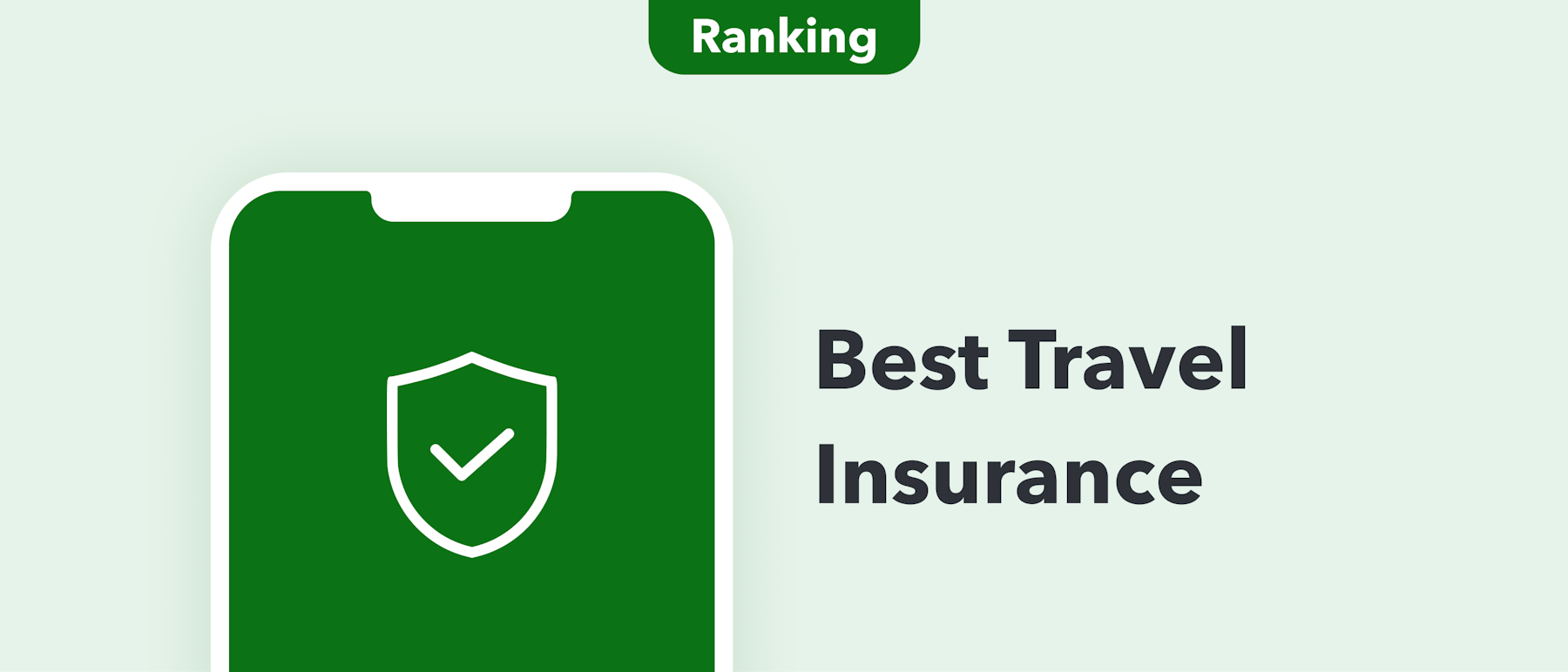
Traveling From the USA to Europe? Here Are 3 Health Insurances to Know in 2023

Byron Mühlberg
Monito's Managing Editor, Byron has spent several years writing extensively about financial- and migration-related topics.
Links on this page, including products and brands featured on ‘Sponsored’ content, may earn us an affiliate commission. This does not affect the opinions and recommendations of our editors.
Visiting Europe is an exciting and memorable trip for most American travellers, regardless of whether it's for business, to visit friends or family, or just as a tourist to see the big cities like Paris, Rome, or Vienna And while traveling to Europe can be an accessible, it's worth remembering that out-the-pocket healthcare costs are among the most expensive in the world, so it's not just a good idea, but essential, to arrive in the country with travel health insurance under your belt.
Luckily, online global insurances (known as 'insurtechs') specialize in cost-savvy travel insurance to Europe and other countries worldwide. Our list below explores the four services we believe provide the best deals for young adventurers, everyday holidaymakers looking for comprehensive but affordable coverage, and longer-term expats alike.
Europe Insurance Profile
Here are a few of the many factors influencing the scope and cost of travel insurances for Europe:
Best Travel Insurances for Europe
- 01. Should I get travel insurance for Europe? scroll down
- 02. Best medical coverage: VisitorsCoverage scroll down
- 03. Best trip insurance: Insured Nomads scroll down
- 04. Best mix for youth and digitial nomads: SafetyWing scroll down
- 05. FAQ about travel insurance from the USA to Europe scroll down
Is Travel Insurance Mandatory From the USA to Europe?
Yes, travel insurance is mandatory when travelling to Schengen countries. If you're entering the Schengen Area from a non-Schengen country, you must show a valid passport and travel insurance that covers the duration of their stay and a minimum coverage of 30,000 euros. Being insured is one of the necessary steps to secure a visa and enter the Schengen Area, and failure to comply may result in a denial of entry from America.
However, regardless of whether or not it's legally required, it's always a good idea to take our health insurance before you travel — whether to Europe or anywhere else. For what's usually an affordable cost , taking out travel insurance will mitigate most or all of the risk of financial damage if you run into any unexpected troubles during your trip abroad. Take a look at the top five reasons to get travel insurance to learn more.
With that said, here are the top three travel insurances for the EU from America:
VisitorsCoverage: Best Medical Coverage
Among the internet's best-known insurance platforms, VisitorsCoverage is a pioneering Silicon Valley insurtech company that offers comprehensive medical coverage for visitors from the USA traveling to the EU. It lets you choose between various plans tailored to meet the specific needs of your trip to Europe, including coverage for emergencies, doctor's visits, and other medical-related expenses. With its easy online purchase process and 24/7 live chat support, VisitorsCoverage is a reliable and convenient option if you want good value and peace of mind while travelling abroad.

- Coverage 9.0
- Quality of Service 9.0
- Pricing 7.6
- Credibility 9.5
VisitorsCoverage offers a large variety of policies, and depending on your needs and preferences, you'll need to compare and explore their full catalogue of plans for yourself. However, we've chosen a few highlights for their travel insurance for Europe:
- Policy names: Varies
- Medical coverage: Very good. Includes coverage for doctor and hospital visits, pre-existing conditions, repatriation, mental health-related conditions, and many others.
- Trip coverage: Excellent - but only available for US residents.
- Customer support: FAQ, live chat and phone support
- Pricing range: USD 25 to USD 150 /person /month
- Insurance underwriter: Lloyd's, Petersen, and others
- Best for: Value for money and overall medical coverage
Insured Nomads: Best Trip Coverage
Insured Nomads is another good travel insurance provider for Europe, especially if you're adventurous or frequently on the go and are looking for solid trip insurance from the USA with some coverage for medical incidents too. With Insured Nomads, you can choose the level of protection that best suits your needs and enjoy a wide range of benefits, including 24/7 assistance, coverage for risky activities and adventure sports, and the ability to add or remove coverage as needed. In addition, Insured Nomads has a reputation for providing fast and efficient claims service, making it an excellent choice if you want peace of mind while exploring the world.

- Coverage 7.8
- Quality of Service 8.5
- Pricing 7.4
- Credibility 8.8
Insured Nomads offers three travel insurance policies depending on your needs and preferences. We go through them below:
- Policy names: World Explorer, World Explorer Multi, World Explorer Guardian
- Medical coverage: Good. Includes coverage for doctor and hospital visits, pre-existing conditions, repatriation, and many others.
- Trip coverage: Good. Includes coverage for trip cancellation and interruption, lost or stolen luggage (with limits), adventure and sports activities, and many others.
- Customer support: FAQ, live chat, phone support
- Pricing range: USD 80 to USD 420 /person /month
- Insurance underwriter: David Shield Insurance Company Ltd.
- Best for: Adventure seekers wanting comprehensive trip insurance
SafetyWing: Best Combination For Youth
SafetyWing is a good insurance option for young people or digital nomads from the USA because it offers flexible but comprehensive coverage at a famously affordable price. With SafetyWing, you can enjoy peace of mind in the EU knowing you're covered for unexpected medical expenses, trip cancellations, lost or stolen luggage, and more. In addition, SafetyWing's user-friendly website lets you manage your policy, file a claim, and access 24/7 assistance from anywhere in the world, and, unlike VisitorsCoverage, you can even purchase a policy retroactively (e.g. during a holiday)!

- Coverage 7.0
- Quality of Service 8.0
- Pricing 6.3
- Credibility 7.3
SafetyWing offers two travel insurance policies depending on your needs and preferences, which we've highlighted below:
- Policy names: Nomad Insurance, Remote Health
- Medical coverage: Decent. Includes coverage for doctor and hospital visits, repatriation, and many others.
- Trip coverage: Decent. Includes attractive coverage for lost or stolen belongings, adventure and sports activities, transport cancellation, and many others.
- Pricing range: USD 45 to USD 160 /person /month
- Insurance underwriter: Tokyo Marine HCC
- Best for: Digital nomads, youth, long-term traveling
Compare For Yourself
In this post, we explored three travel insurance providers you should consider for your next trip to Europe from the USA. That being said, there are many more providers out there, some of which might make even more sense for you depending on your travel needs and preferences. To compare the top providers on the market, run a search on Monto's travel insurance comparison engine below 👇
Find travel insurance for you:
How do they compare.
Interested to see how VisitorsCoverage, SafetyWing, and Insured Nomads compare as travel insurances to Europe? Take a look at the side-by-side chart below:
Data correct as of 14/02/2023
FAQ About Travel Insurance from the USA to Europe
Travel insurance typically covers trip cancellation, trip interruption, lost or stolen luggage, travel delay, and emergency evacuation. Some travel insurance packages also cover medical-related incidents too. However, remember that the exact coverage depends on the insurance policy.
Yes, travel insurance is mandatory when travelling to Schengen countries. If you're entering the Schengen Area from a non-Schengen country, you must show a valid passport and travel insurance that covers the duration of their stay and a minimum coverage of 30,000 euros. Being insured is one of the necessary steps to secure a visa and enter the Schengen Area, and failure to comply may result in a denial of entry.
Yes, medical travel insurance is almost always worth it, and we recommend taking out travel insurance whenever visiting a foreign country. Taking out travel insurance will mitigate some or all of the risk of covering those costs yourself in case you need medical attention during your stay. In general, we recommend VisitorsCoverage to visitors worldwide because it offers excellent value for money and well-rounded travel and medical benefits in its large catalogue of plans.
Health insurance doesn't cover normal holiday expenses, such as coverage for missed flights and hotels, but in case you run into medical trouble while abroad, it may cover some or all of your doctor or hospital expenses while overseas. However, not all health insurance providers and plans offer coverage to customers while abroad, and that's why it's generally best to take out travel insurance whenever you travel.
Although there's overlap, health and travel insurance are not exactly the same. Health insurance covers some or all of the cost of medical expenses (e.g. emergency treatment, doctor's visits, etc.) while travel insurance covers non-medical costs that are commonly associated with traveling (e.g. coverage for missed flights, stolen or lost personal belongings, etc.).
The cost of travel insurance depends on several factors, such as the length of the trip, the destination, the age of the insured, and the level of coverage desired. On average, travel insurance can cost anywhere between 3% and 10% of the total cost of the trip.
A single-trip travel insurance policy covers a specific trip, while an annual one covers multiple trips taken within a one-year period. An annual policy may be more cost-effective for frequent tourists.
Yes, you can sometimes purchase travel insurance after starting your trip, but it is best to buy it before the trip begins to ensure maximum coverage. If you do need to buy insurance after you've started your trip, we recommend VisitorsCoverage , which offers a wide catalogue of online trip and medical insurance policies, most of which can be booked with immediate effect. Check out our guide to buying travel insurance late to learn more.
Yes, you can most certainly purchase travel insurance for a trip that has already been booked, although we recommend purchasing insurance as soon as possible aftwerwards to ensure all coverage is in place before your journey begins. Check out our guide to buying travel insurance late to learn more.
See Our Other Travel Insurance Guides

Looking for Travel Insurance to Another Country?
See our recommendations for travel insurance to other countries worldwide:
Why Trust Monito?
You’re probably all too familiar with the often outrageous cost of sending money abroad. After facing this frustration themselves back in 2013, co-founders François, Laurent, and Pascal launched a real-time comparison engine to compare the best money transfer services across the globe. Today, Monito’s award-winning comparisons, reviews, and guides are trusted by around 8 million people each year and our recommendations are backed by millions of pricing data points and dozens of expert tests — all allowing you to make the savviest decisions with confidence.
Monito is trusted by 15+ million users across the globe.
Monito's experts spend hours researching and testing services so that you don't have to.
Our recommendations are always unbiased and independent.
- Personal Finance Accounts Best Credit Cards Best Financial Advisors Best Savings Accounts Apps Best Banking Apps Best Stock Trading Software Robinhood Alternatives TurboTax Alternatives Brokers Brokerage Account Taxes Brokers for Bonds Brokers for Index Funds Brokers for Options Trading Brokers for Short Selling Compare Online Brokers Forex Brokers Futures Brokers High-Leverage Forex Brokers MetaTrader 5 Brokers Stock Brokers Stock Brokers For Beginners
- Insurance Car Best Car Insurance Rental Car Insurance Motorcycle Best Motorcycle Insurance Seasonal Insurance Vision Best Vision Insurance Types of Vision Insurance Vision Insurance For Kids Vision Insurance For Seniors Health Affordable Health Insurance Best Health Insurance Companies Individual Health Insurance Self-employed Health Insurance House Earthquake Insurance Flood Insurance Homeowners Insurance Mobile Homes Moving Insurance Renters Insurance Sewer Line Dental Affordable Dental Insurance Best Dental Insurance Dental Insurance With No Annual Maximum Dental Insurance With No Waiting Period Kids Dental Insurance Medicare Compare Medicare Plans Cost of Hospital Stays Life Term Life Insurance Business Best Business Insurance Pet Best Pet Insurance
- Investing Penny Stocks Best EV Penny Stocks Best Penny Stocks Penny Stocks Under 10 Cents Penny Stocks With Dividends Futures Best Futures Trading Software Futures to Trade Futures Trading Courses Strategies Trading Platforms for E-Mini Futures Stocks Best Stock Charts Best Stocks Under $50 Best Stocks Under $100 Best Swing Trade Stocks Best Time to Trade Cash App Stocks How to Invest Stock Market Scanners Stock Market Simulators Stocks to Day Trade Forex Forex Demo Accounts Forex Robots Forex Signals Forex Trading Apps Forex Trading Software How to Trade Forex Making Money Trading Forex Trading Courses Trading Strategies Options Options to Buy Options Trading Apps Options Trading Books Options Trading Courses Paper Trading Swing Trading Options Trading Examples Trading Simulators Trading Software Trading Day Trading Apps Day Trading Books Day Trading Courses Day Trading Software Day Trading Taxes Prop Trading Firms Trading Chat Rooms Trading Strategies Alternative investing Alternative Investment Platforms Best REITs Best Alternative Investments Best Cards to Collect Best Gold IRAs Investing in Precious Metals Investing in Startups Real Estate Crowdfunding ETFs Commercial Real Estate ETFs International ETFs Monthly Dividing ETFs
- Mortgage Best Mortgage Companies FHA Lenders First Time Buyers HELOC & Refinancing Lenders for Self-Employed People Lenders That Do Not Require Tax Returns Online Mortgage Lenders
- Crypto Best Crypto Apps Business Crypto Accounts Crypto Day Trading Crypto Exchanges Crypto Scanners Crypto Screeners Earning Interest on Crypto Get Free Crypto How to Trade Crypto Is Bitcoin a Good Investment?
Best International Travel Insurance
Travel insurance isn’t mandatory, though some countries may insist you have it before crossing their borders. It is also a requirement for the issuance of some visas. Still, international travel is uncertain. You’ll need international travel insurance if you’re about to embark on a trip abroad.
Travel insurance will protect you from financial loss should you need medical attention, lose your luggage or find yourself stranded in a foreign country — flights cancelled or delayed. Fortunately, several international travel insurance companies offer packages to suit all travel needs.
Quick Look: Best International Travel Insurance
Five best international travel insurance, best for digital experience: faye, best for budget insurance: travelex, best for families: arch roamright, best for frequent fliers: allianz travel insurance, best for cruise vacations: nationwide travel insurance, how does international travel insurance work, what does international travel insurance cover.
- Travel Delay
Trip Cancellation
- Trip Interruption
- Baggage Insurance
- Travel Medical Insurance
- Emergency Medical Evacuation
- Interruption For Any Reason (IFAR) Travel Insurance
- Cancel For Any Reason (CFAR) Travel Insurance
- Accidental Death and Dismemberment (AD&D) Insurance
What Is Not Covered by International Travel Insurance
How much does international travel insurance cost, travel with confidence.
- Frequently Asked Questions
- Best for Travel on a Budget: Travelex International Ltd.
- Best for Cruise Vacation s: Nationwide Travel Insurance
Here are five of the best international travel insurance companies offering essential and add-on services for peace-of-mind travel.

Online travel insurance company Faye offers a single travel plan with optional add-ons. Users access plans and file claims on a free app with 24/7 access. Expect payment directly into a digital wallet.
The basic insurance covers most medical expenses, including preexisting conditions and medical evacuation, lost or damaged luggage and trip cancellation and interruption. You can also choose add-ons like extreme sports and car rental damage coverage. Prices differ depending on the destination and travel duration. International coverage starts at an affordable $5.16 per day and domestic at $4.64.
- Available 24/7 on mobile app
- Customizable
- Provides nonmedical emergency evacuation up to $100,00
- Emergency medical coverage is no as generous as some of the other packages
- No interruption for any reason

Choose from three Travelex plans. The Basic plan comes in at a below-average premium. Quotes are available online. Benefits include trip delay, interruption and cancellation, baggage coverage and primary and emergency medical care. It also covers emergency medical evacuation.
The family-directed Travel Select plan includes free coverage for children under 18. Unlike the Basic plan, it covers preexisting medical conditions. It also provides for customized add-ons like adventure sports. Travel America is designed for trips in the U.S. and covers up to seven people in a group. Apply for travel insurance online and get a quote in seconds.
- Three options to suit travel plans
- Free coverage for children under 18
- Domestic travel at a flat rate
- Some add-ons are unavailable on the Basic plan
- Low emergency medical coverage — $15,000 on the Basic plan

This provides a broad overview of your policy provisions and does not revise or amend the policy. Insurance coverages are underwritten by Arch Insurance Company, NAIC #11150, under policy series LTP 2013 and amendments thereto. Plans are offered and disseminated by registered travel retailers on behalf of Arch Insurance Solutions Inc., a licensed travel insurance producer* (CA License #0I18111, TX License #1787195). Both the travel insurance producer and the underwriter referenced above may be reached at 1-844-872-4163. Your policy is the contract that specifically and fully describes your coverage. Certain terms, conditions, restrictions and exclusions apply and coverages may vary in certain states. Please refer to your policy for detailed terms and conditions. Consumer Disclosures can be found at: https://www.roamright.com/disclosures/. Privacy policy can be found at: https://www.roamright.com/roamright-website-privacy-policy/ *Plans are solicited by licensed producers in NY and HI.
Choose from Pro and Pro-Plus plans when you insure with Arch RoamRight. Both plans offer free coverage for one child younger than 18 per adult with travel insurance. The children receive the same coverage as the accompanying adult traveler — cost-effective insurance for traveling families. The insurance covers medical emergencies, travel delays and interruptions and lost luggage. Pro-Plus covers existing conditions. The company offers upgrades for adventure travel, rental car damage and delayed luggage. Make claims by phone, email or online.
- Excellent customer service
- Free coverage for a child younger than 18 per adult
- Two policies and upgrades
- Limited extreme sports coverage

If you’re looking for all the travel insurance essentials on a budget, the Allianz One Trip Basic plan will work for you. Allianz provides users with an app to track and claim coverage.
There are several plans on offer with some interesting innovations.
One Trip Emergency Medical increases the emergency medical coverage for the Basic plan from $10,000 to $50,000 but excludes trip interruption and cancellation benefits. All Trip options provide travelers with year-round protection for a single fee and include car rental protection. Allianz has a Concierge service and multilingual customer service 24/7.
- Several policy options tailored to your needs
- All Trip Basics offers year-round coverage
- Multilingual service 24/7
- Concierge services included in the plans
- Medical coverage is low
- 12-hour delay for baggage delay
In business since 1926, Nationwide Travel Insurance offers travelers a choice of seven travel insurance policies. Nationwide’s Essential Plan offers basic travel insurance at below-average prices. It also provides specialized cruise insurance and annual plans for those who travel frequently and would prefer to pay a single premium for a year’s coverage. Add-ons include rental car coverage, cancel for any reason (CFAR) and accidental death and dismemberment (AD&D) coverage.
- Offers specialized cruise travel insurance
- Frequent travelers can buy annual travel insurance
- Optional add-ons include rental car damage, CFAR and AD&D
- 12-hour wait for baggage delay
Anything can go wrong when you travel to foreign countries. You may have to cancel the trip, or it may be delayed. You may become ill or lose your luggage. International travel insurance protects you from financial loss under some of these circumstances.
International travel insurance can be worthwhile because it covers a broad range of possible circumstances.
Travel Delay
Most insurance companies impose a six-hour minimum waiting period before you can claim expenses for travel delays.
Trip cancellation covers you for the prepaid portion of your travel costs in the event of cancellation. The policy will list the covered events. You can also buy coverage for all events but at a higher premium.
Trip Interruption
Your insurance will cover you for specified unforeseen travel interruptions. Listed reasons usually include illness, injury or bad weather.
Baggage Insurance
Baggage insurance covers you for lost, damaged or stolen luggage.
Travel Medical Insurance
Overseas medical costs can pile up, and your medical aid may not cover them. Travel medical insurance covers all your medical like ambulance services, hospitalization and doctor’s visits should you become ill or injure yourself while traveling.
Emergency Medical Evacuation
If you are seriously injured or ill while abroad, you may have to move to another facility capable of providing the treatment. Emergency medical evacuation covers transportation costs. In some instances, medical evacuation will also cover repatriation costs so you can return home.
Interruption For Any Reason (IFAR) Travel Insurance
Some insurance companies offer IFAR as an additional benefit. Under this benefit, you can return home for any reason. You will receive a portion of your prepaid expenses as a reimbursement.
Cancel For Any Reason (CFAR) Travel Insurance
CFAR insurance is another add-on product. You must buy it within two to three weeks of paying deposits for the trip or you won’t qualify. There is also usually a waiting period before you can cancel and a cap of around 75% on the reimbursement.
Accidental Death and Dismemberment (AD&D) Insurance
AD&D covers you in case of accidental death or loss of a limb and faculties like sight. Your policy will define the injuries. Ensure you understand the exclusions if you buy this additional travel insurance.
There are certain injuries and illnesses that your international travel insurance will not cover. These include:
- Preexisting medical conditions
- Natural disasters, civil unrest and war
- Change-of-mind cancellation
- Injury during high-risk activities
- Losses caused by negligence or in the commission of an illegal activity
- Routine doctor’s visits or procedures
Costs for international travel insurance differ considerably according to the trip cost, coverage, options, traveler age and ports of departure and destination. On average, travel insurance will cost between 3% and 6% of your nonrefundable costs.
Don’t plan a foreign holiday without travel insurance. It isn’t worth the risk. Travel insurance protects you from losses when things go wrong as you travel the world. It protects you from financial loss and could make all the difference if you need medical attention or suffer the inconvenience of delayed or canceled flights. There is travel insurance to meet all your insurance needs at an affordable price.
Frequently Asked Questions
Is international travel insurance required.
In most countries, international travel insurance is not mandatory, though some may make it a prerequisite for entry. Some embassies also require proof of medical insurance before issuing a visa.
Does international travel insurance cover preexisting medical conditions?
International travel insurance does not cover preexisting medical conditions.
Is it possible to extend international travel insurance coverage while abroad?
Most insurance companies will allow you to extend your international travel insurance coverage while abroad though there may be time limits.
- Travel Insurance
The journalists on the editorial team at Forbes Advisor Australia base their research and opinions on objective, independent information-gathering.
When covering investment and personal finance stories, we aim to inform our readers rather than recommend specific financial product or asset classes. While we may highlight certain positives of a financial product or asset class, there is no guarantee that readers will benefit from the product or investment approach and may, in fact, make a loss if they acquire the product or adopt the approach.
To the extent any recommendations or statements of opinion or fact made in a story may constitute financial advice, they constitute general information and not personal financial advice in any form. As such, any recommendations or statements do not take into account the financial circumstances, investment objectives, tax implications, or any specific requirements of readers.
Readers of our stories should not act on any recommendation without first taking appropriate steps to verify the information in the stories consulting their independent financial adviser in order to ascertain whether the recommendation (if any) is appropriate, having regard to their investment objectives, financial situation and particular needs. Providing access to our stories should not be construed as investment advice or a solicitation to buy or sell any security or product, or to engage in or refrain from engaging in any transaction by Forbes Advisor Australia. In comparing various financial products and services, we are unable to compare every provider in the market so our rankings do not constitute a comprehensive review of a particular sector. While we do go to great lengths to ensure our ranking criteria matches the concerns of consumers, we cannot guarantee that every relevant feature of a financial product will be reviewed. We make every effort to provide accurate and up-to-date information. However, Forbes Advisor Australia cannot guarantee the accuracy, completeness or timeliness of this website. Forbes Advisor Australia accepts no responsibility to update any person regarding any inaccuracy, omission or change in information in our stories or any other information made available to a person, nor any obligation to furnish the person with any further information.
Travel Insurance For Vietnam: Everything You Need To Know
Updated: Apr 26, 2024, 11:14am
Table of Contents
Do australians need travel insurance for vietnam, what does travel insurance for vietnam cover, frequently asked questions (faqs).
Vietnam is an increasingly popular travel destination for Australians, with the country even hoping to encourage more Aussies to visit by potentially waiving visa requirements in due time.
The Southeast Asian country is set to be high on the list for Aussies going overseas in 2024. The number of Australian tourists in Vietnam now exceeds pre-pandemic levels: more than 317,000 Australians visited Vietnam in 2019 , while there were 390,000 Aussie visitors in 2023.
Plus, as more and more flights become available, such as low-cost carrier Vietjet Air launching a direct service between Hanoi and Melbourne earlier this year, getting to Vietnam is becoming easier for Australians.
If the direct flights, fascinating history, vast scenery and delicious food aren’t enough to convince Australian travellers, the cost may be. Vietnam is considered one of the cheapest travel destinations in the world for Australian tourists due to our strong conversion rate against the Vietnamese Dong and the nation’s low cost of living in comparison to our own.
And while cheap thrills may be what you’re after on your vacation, it’s important not to skimp on the necessities that may cost that little bit extra—such as travel insurance. This guide outlines what you need to know regarding travel insurance in Vietnam.
Featured Partners
Fast Cover Travel Insurance
On Fast Cover’s Secure Website
Medical cover
Unlimited, 24/7 Emergency Assistance
Cancellations
Unlimited, (Trip Disruption $50,000)
Key Features
25-Day Cooling Off Period, Australian Based Call Centre, 4.6 Star Product Review Rating
Cover-More Travel Insurance

On Cover-more’s secure website
Unlimited, with a $2000 limit to dental
Yes, amount chosen by customer
Southern Cross Travel Insurance

Medical Cover
Including medical treatment, doctors’ visits, prescribed medication, specialist treatment & medical transport costs
$2,500 with option to increase to unlimited
Investing in travel insurance is a good idea for any overseas trip. Travel insurance policies can help protect you from having to dive deep into your pockets, with many offering unlimited medical treatment while abroad and cancellation cover for your trip should the unexpected occur.
Travel insurance is not just handy for medical purposes or travel changes, either. Your personal items can be covered, should any baggage go missing or an important item be stolen—which, unfortunately, often occurs in Vietnam.
Smarttraveller warns Australians to be alert at all times in Vietnam, considering petty theft–including bag slashing–is common in tourist areas and crowded places, especially during holiday times. Snatch-and-grab theft by thieves on motorcycles is also common, the website states.
Like most international travel insurance policies, you will be able to find basic coverage for your trip to Vietnam, or choose to opt for a more comprehensive, albeit more expensive, policy.
While a basic policy will often cover medical expenses and lost luggage,a comprehensive policy includes a lot more. Most basic policies also likely won’t offer compensation for travel delays, stolen cash, accidental death and more.
Additionally, if you are going on a trip to multiple countries within the year, it may be worth opting for an ‘annual multi trip’ insurance instead—making sure that there are no exclusions to the regions you are wishing to visit.
Visa Requirements For Australians Travelling to Vietnam
You’ll still be allowed to travel to Vietnam if you don’t invest in travel insurance, but you do so at your own risk—and, as stated, it is highly advised to have a travel insurance policy for any overseas trip.
However, what you cannot do is enter Vietnam as an Australian tourist without a tourist visa. While Vietnam will grant Australian citizens visas on arrival, applying for one online is much easier.
A tourist visa costs under $100 AUD; however the exact price depends on your length of stay.
The Vietnamese government may consider waiving visas for Australian citizens, especially since many other SEA countries have done so such as Indonesia and Thailand .
However, at the time of writing, Forbes Advisor Australia has confirmed that Australian citizens must still obtain a visa to visit Vietnam for tourism purposes.
The exact inclusions of your travel insurance will be dependent on your personal policy and the provider.
However, generally speaking, you can expect a travel insurance policy for Vietnam to offer some level of cover for:
- Medical expenses;
- Lost, damaged or stolen luggage;
- Travel cancellations or delays ;
- Personal liability;
- Credit card fraud;
- Covid-19 expenses;
If you are partaking in certain sports and activities, you will need to make sure that you choose a policy that covers them. You’ll also need to make sure that your policy covers any pre-existing medical conditions as well.
Plus, if you are travelling with valuables, you may wish to opt for a policy that lets you increase the protection cover on your items.
Ultimately, you need to consider what your trip consists of, what you will be taking with you, and your physical health to establish what policies would be appropriate for you.
From there, you can compare quotes of different policies and providers to ensure you have the optimal—yet affordable—cover for your trip to Vietnam.
Does Travel Insurance Cover The Ha-Giang Loop?
Considered one of the most scenic motorcycle routes in the world, the Ha-Giang Loop is a popular tourist activity in Vietnam for adventurous travellers. If the Ha-Giang Loop is one of your goals, you’ll need to make sure you have travel insurance that covers motorcycling.
Occasionally a policy may include this as one of their included ‘sports and activities’, but it is more often the case that you will need to purchase an additional ‘adventure pack’ that is either specific to, or includes, motorsports.
Even so, when purchasing an additional pack to cover motorbikes, you need to be cautious of the conditions. For example, some policies will only cover motorcycle riding if the bike you are riding has an engine under a certain size.
Often, coverage will cease and claims won’t be accepted if you haven’t been wearing the correct safety equipment such as boots and a helmet, or have been under the influence of drugs and alcohol.

What Does Travel Insurance Exclude?
Your travel insurance policy may exclude some activities that you wish to partake in, unless you can opt-in to purchase an additional adventure pack as explained above in regards to motorbike riding.
Just like with the inclusions of a policy, the exclusions depend on what type of policy you choose, and what provider you go with.
Commonly, however, you won’t be covered for instances where you:
- Break the law;
- Are under the influence of alcohol or drugs;
- Partake in an excluded activity;
- Receive medical treatment for a pre-existing condition that was not disclosed;
- Travel to a ‘Do Not Travel’ destination as outlined by Smarttraveller.
As always, it is essential to read the product disclosure statement (PDS) of your travel insurance policy carefully to understand what you will and won’t be covered for while overseas.
Do I need a visa to travel to Vietnam?
Yes, as of April 2024, Australian tourists still need a visa to travel to Vietnam. This visa can be obtained on arrival, or purchased online prior to travel. The visa takes approximately three days to process online, and the cost depends on how long you intend to stay in the country.
Does international travel insurance cover Covid-19?
Many comprehensive travel insurance policies now cover Covid-19, including medical conditions related to Covid-19 or trip cancellations due to a Covid-19 diagnosis. However, it is not guaranteed that all policies will. It’s important to check your policy’s PDS carefully to understand what it will and will not cover in regards to Covid-19 for both you and your travelling companions.
Related: Travel Insurance And Covid: Are You Covered?
How much does travel insurance cost for Vietnam?
The cost of your travel insurance for a trip to Vietnam will depend on your age, your health, the activities you wish to partake in, and the length of your stay.
For example, for a 34 year old with no pre-existing medical conditions travelling to Vietnam for two weeks, a policy from some of our top choices for comprehensive travel insurance would cost around $130 (based on quotes from Cover-More , 1Cover , and Fast Cover ).
The prices of these quotes would change depending on a chosen excess, cancellation cover, and any additional coverage options you may choose to purchase such as adventure packs or cruise cover.
Related: How Much Does Travel Insurance Cost?
- Best Comprehensive Travel Insurance
- Best Seniors Travel Insurance
- Best Domestic Travel Insurance
- Best Cruise Travel Insurance
- Best Family Travel Insurance
- Travel Insurance Cost
- Pregnancy Travel Insurance Guide
- Travel Insurance Cancellation Cover
- Travel Insurance For Bali
- Travel Insurance For Fiji
- Travel Insurance For The USA
- Travel Insurance For Thailand
- Travel Insurance For New Zealand
- Travel Insurance For Japan
- Travel Insurance For Europe
- Travel Insurance For Singapore
- Travel Insurance For Indonesia
- Cover-More Travel Insurance Review
- Fast Cover Travel Insurance Review
- Travel Insurance Saver Review
- Allianz Comprehensive Travel Insurance Review
- 1Cover Comprehensive Travel Insurance Review
- Australia Post Comprehensive Travel Insurance Review
- Tick Travel Insurance Review
More from
Tick travel insurance top cover review: pros and cons, was discovery travel insurance review: features, pros and cons, fast cover comprehensive travel insurance review: pros and cons, our pick of the best domestic travel insurance for australians, travel insurance for indonesia: everything you need to know, travel insurance for singapore: the complete guide.
Sophie Venz is an experienced editor and features reporter, and has previously worked in the small business and start-up reporting space. Previously the Associate Editor of SmartCompany, Sophie has worked closely with finance experts and columnists around Australia and internationally.

Where do you live
All persons to be insured must reside at a permanent address within the EEC ( Excluding Switzerland, Russia, Belarus, Montenegro and the Ukraine) to be eligible for cover.
Can I take out this insurance if I am already travelling?
When cover is purchased after an Insured Person has departed their home to commence their journey, there is a fixed period of 48 hours prior to cover commencing. Any illness arising during this initial 48 hour period will be an excluded Pre-existing Medical Condition. In the event of serious injury in connection with an accident, you will be covered from the date you take out cover subject to the accident being independently witnessed and also verified by a Medical Practitioner.
There is no 14 Day Cooling off Period and no premium refund will be made if the insured Person has already travelled.
family family
Definition of a couple
A couple is defined as 2 adults who have been permanently living together at the same address for more than six months, who intend to travel together.
If you do not qualify as a couple, please select individual(s)
Annual Multi-Trip Durations
Annual Multi Trip policies are designed for multiple short holidays leaving from and returning to your home country.
Annual Multi Trip trip limits:
Standard policy - 30 days
Premier policy - 70 days
If you need continuous cover for a year (home visits allowed on policies over 4 months long) select Single Trip or One Way. You can travel around as much as you like, to as many different countries as you like, with a Single Trip or One Way policy.
One Way Trip
Please note a Single Trip policy can cover travels with no return ticket booked, a One Way policy is intended for:
Emigrating to new country where you intend to permanently live
Returning to your home country permanently
All cover ceases upon arrival at final destination
Select the type of policy most suitable for your needs.
Single Trip: A flexible policy with no limits on how many countries you visit or how long you’re away for. Suitable for all types of travel whether it be short term/long stay or backpacking. No return ticket required and unlimited home visits offered on policies over 4 months long.
One Way Trip: Means you are Emigrating to a new country where you intend to live permanently or, returning to your home country permanently. Cover will end upon arrival at your final destination. Please note: There is no cover for emergency return travel expenses if you do not have an original return ticket.
Annual Multi-Trip: This policy covers an unlimited number of trips throughout the 12 month Period of Insurance. Each trip has a maximum stay validity depending on the type of policy chosen. For example, for Standard Policies, the maximum duration of any trip shall not exceed 30 days and for Premier policies, the maximum duration of any trip must not exceed 70 days.
If you are already travelling it is not possible to purchase the annual multi-trip policy.
Geographical Areas
Europe: Europe means the continent of Europe West of the Ural Mountains, and includes the Isle of Man, the Channel Islands, Iceland, Jordan, Madeira, the Canary Islands, the Azores and Mediterranean Islands as well as all countries bordering the Mediterranean. Australia & New Zealand: a) For any period of cover purchased, a 48 hour stop-over anywhere in the World for both outward and return travel will be included. b) If the period of cover purchased is two months or more, a stop-over of 7 days/nights anywhere in the World will be included. Worldwide excluding North America & Mexico: (North America means the USA, Canada & Mexico.) a) For any period of cover purchased, a 48 hour stop-over anywhere in the World for both outward and return travel will be included. b) If the period of cover purchased is two months or more, a stop-over of 7 days/nights anywhere in the World will be included. Worldwide including North America & Mexico: Worldwide means anywhere in the World including the USA, Canada & Mexico.
Automatic Trip Extension If the Insured Person is prevented from completing their travel before the expiration of this Insurance as stated under the Period of Insurance on the Booking Invoice or Validation Certificate (as applicable) for reasons which are beyond their control, including ill health or failure of public transport, this Insurance will remain in force until completion but not exceeding a further 31 days on a day by day basis, without additional premium. In the event of an Insured Person being hijacked, cover shall continue whilst the Insured Person is subject to the control of the person(s) or their associates making the hijack during the Period of Insurance of a period not exceeding twelve months from the date of the hijack. Please ensure you arrange cover for the entire duration of your travel
Where you normally reside
Where do you normally reside? Where do you normally reside? Please use the drop down box to choose your country of residence. Note we can only insure residents of the UK & EEA Countries. Can I take out this Insurance if I’m already abroad? If you are normally a resident of the UK or EEA Countries and your insurance has run out, you may take out cover online with us. This is on the understanding that nothing has occurred at the time of taking out the cover which has led to a claim or may lead to a potential claim. Note you cannot take out our Multi-Trip Insurance if you are already abroad. Do you have minimum residency requirements? No. If you are, for example, a British Passport holder and have right of abode in the UK, we are not concerned as to how many months in the past year you have been in the UK provided at the time of arranging this insurance you have a UK residential address.
Age Restriction Error
We are unable to quote, Please ring our Offices on 0333 0033 161 for further assistance.
Get a Quote
Get Cover if Already Travelling
You don't need to be in your Home Country to get cover, you can buy a policy from anywhere in the world, as long as you're residential status is still in the UK. Just follow the Quote form to get a price and complete your purchase.
Extend your Travel Insurance
If at any point you realise you're not quite ready to return home, you can extend your insurance to include the remainder of your trip. Even if you don't have a Policy with us.
Working while abroad
Non manual / clerical work is covered for free, if you'll be volunteering, WWOOFing or partaking in any sort of manual labour - our Activity Pack can cover you.
Free Home Visits
If you feel homesick at any time, so long as your policy duration is more than 4 months, you can pop home to see family and friends at any time, however many times you choose.
Cover for 156+ Activities
Whether you'll be scuba diving, jet skiing, bungee jumping, sky diving, trekking above 2,500m or kayaking. Our Activity Packs can cover various levels of adventurous sports.
Winter Sports
Big Cat’s Winter Sports Extension provides great-value cover for those wishing to make the most of the snow. As well as standard skiing and snowboarding, you’ll be covered for cat skiing, snow skiing, cross-country skiing, off-piste skiing / snowboarding, and snowmobiling.
Cancellation & Baggage Cover
24 hour emergency helpline, up to £10m medical cover, claim while you're travelling, already travelling insurance.
It’s not uncommon for people to head off on their travels only to realise they are not insured after departure, or to find out once they are already overseas that their travel insurance is about to run out. But don’t fret, Big Cat can still provide you with suitable already travelling insurance cover even though you’re already travelling abroad, or we can extend your insurance to cover the remainder of your travels.

Annual Multi-trip policies can not be purchased if you are already travelling.
Key features of already travelling insurance:.
- Emergency Medical and Repatriation Expenses up to £10 million.
- Emergency Dental Cover.
- Cover duration of up to 24 months.
- Baggage Cover
- Gadgets & Valuable Cover
- One Way Travel.
- No return ticket requirement.
- Free Home visits.
- Policy Extensions whilst still travelling.
- 156+ Sports and Activities.
- Winter Sports Cover.
- Loss of Passport & Visa replacement costs.
Some FAQ's:
Riding a motorbike or scooter up to 125cc is automatically covered with all our policies. Riding a motorbike over 125cc can be covered with our Activity Pack Add-on.
If you are a pillion passenger on a motorcycle tour, such as the Ha Giang Loop, this is covered automatically and does not require any Activity Packs or any relevant licences.
When riding, you must always ensure you:
- Wear an appropriate crash helmet.
- Obey the Local road rules and laws
- Have the relevant licence(s) required to ride a motorcycle in the country or countries you will be riding in. If the country you’re in requires you to obtain a specific in-country licence to legally ride a motorcycle, then to be covered, you must obtain this licence.
- If all that’s required is an International Driving Permit (IDP), and you hold an IDP, then there’s no need to go about getting any more licences.
- Be aware that an IDP will only allow you to ride the same class of vehicle as your home licence allows. So, if you’re not licensed to ride a motorbike at home, you’re not licensed to ride a motorbike abroad under your IDP. It's up to you to make sure you are licensed for the type of motorcycle you hire.
- You should always ensure the bike is fully insured (motor insurance arranged by the company that owns the bike) as there is no Personal Lability cover whilst riding a bike. We cannot cover any participation in competitions or racing or any kind.
Non-manual/clerical work is covered automatically with a Big Cat policy. So, there’s nothing you need to add to be covered for things like teaching, caring or nursing.
With the Activity Pack, we can also cover work of a more manual nature. This can include things like WWOOFing, partaking in community or wildlife based conservation work, charity based supervised building / renovation projects or other permitted manual work (defined below).
Cover is excluded for any activity that involves the use of industrial machinery (other than tractors) or non-domestic power tools.
WWOOfing is classed as Permitted Manual Work, so with the Activity Pack, you’re covered.
(see above)
Temporary return to home country (Single trip policies only) Where cover has been purchased for a total duration of 4 months or more, and you want to return to your home country during the period of insurance for any reason that is not directly or indirectly caused by arising or resulting from, or in connection with a claim under this insurance all cover under this policy will be suspended from the time that you clear customs in your home country and restarts after the baggage check in at the international departure point for the return flights, international train or ferry to the overseas destination. Any illness, disease, injuries, accidents which existed, showed symptoms or were diagnosed in the previous trip(s) during this period of insurance will not be covered in the restarted period of insurance.
Yes, bar work or working in a chalet is automatically covered with all of our policies.
Decide Canada’s not for you, and want to return earlier than your full period of insurance?
Other insurers will tell you to wave goodbye to your money, but Big Cat lets you claim a partial premium refund for the unused time you didn’t stay in Canada.
How does the EARLY RETURN REFUND work?
Let’s say you buy a 24-month policy to cover your time in Canada. But after nine months, you decide that Canada’s not for you, and you want to return home. You may have invested a substantial amount for your 24 months Big Cat policy, most of which you’ll now no longer need. Unlike most insurers, Big Cat is happy to offer you a partial refund on the redundant portion of your insurance as a fair’s fair consolation. Please note that travel insurance premiums are not calculated on a pro-rata basis, as such, no refund is calculated in this manner either.
How does Big Cat calculate the amount of EARLY RETURN REFUND?
We take the length of time of the original policy and subtract the actual amount of time you have used, and payout the difference, deducting a £50 Cancellation Charge.
Are there other conditions that apply to my EARLY RETURN REFUND?
- Only applicable to 24 month IEC policies.
- We are not able to offer refunds to cover the first 6 months of the policy.
- No refund can be given on a policy where a claim has been made or is likely to be made prior to the cancellation of your Big Cat policy.
- You must be back in your home country and notify us by email of your wish to cancel the policy within 14 days of your arrival, please also provide us with proof of your return to the UK (flight ticket / e-ticket / boarding pass).
- All refund calculations are based on the base premium paid only. Add-ons are non-refundable.
Can you give an example of how much I could receive back in my EARLY RETURN REFUND?
Say you took out a 24-month budget IEC policy costing £525.24, then you wish to cancel the policy after 9 months. Our 9-month budget IEC policy costs £312.55. So we deduct £312.55 from £525.24 = £212.99
Then we apply the £50 Cancellation Charge, refunding you a total of £162.99.
Big Cat Travel Insurance Services, a trading name of Flynow.com Ltd (registration No.FRN 745388) is an Appointed Representative of Campbell Irvine Ltd (registration No.306242) who are authorised and regulated by the Financial Conduct Authority. You may check this on the Financial Services register www.fca.org.uk or by contacting them on (0) 800 111 6768. © 2023 Big Cat Travel Insurance Services. All rights reserved.
A fantastic plugin that allows you to display age restriction message to the visitors while visiting site
List of automatically covered medical conditions that do not need to be declared
Acne, ADHD, Allergic reaction (Anaphylaxis) provided that you have not needed hospital treatment for this in the last 2 years, Allergic rhinitis, Arthritis (the affected person must be able to walk independently at home without using mobility aids), Asthma (the diagnosis must have been made when the affected person was under the age of 50, and the asthma be controlled by no more than 2 inhalers and no other medication), Blindness or partial sightedness, Carpal tunnel syndrome, Cataracts, Chicken pox - if completely resolved, Common cold or flu, Cuts and abrasions that are not self-inflicted and require no further treatment, Cystitis - provided there is no on-going treatment, Deafness, Diabetes (which is controlled by diet or tablets only), Diarrhoea and vomiting - if completely resolved, Eczema, Enlarged prostate - benign only, Essential tremor, Glaucoma, Gout, Haemorrhoids, Hay fever, Ligament or tendon injury - provided you are not currently being treated, Macular degeneration, Menopause, Migraine - provided there are no on-going investigations, Nasal polyps, PMT, RSI, Sinusitis - provided there is no on-going treatment, Skin or wound infections that have completely resolved with no current treatment, Tinnitus, Underactive Thyroid (Hypothyroidism), Urticaria, Varicose veins in the legs.
Important information
If you have a medical condition in addition to any of the automatically covered medical conditions, all conditions will be excluded from cover unless declared to the medical screening helpline.
What is classed as a medical condition?
a Any respiratory condition (relating to the lungs or breathing), heart condition, stroke, Crohn’s disease, epilepsy, allergy, or cancer for which you have ever received treatment (including surgery, tests or investigations by your doctor or a consultant/ specialist or prescribed medication).
b Any psychiatric or psychological condition (including anxiety, stress and depression) for which you have suffered which you have received medical advice or treatment or been prescribed medication for in the last five years.
c Any medical condition for which you have received surgery, in-patient treatment or investigations in a hospital or clinic within the last 12 months, or for which you are prescribed medication.
Any premium for medical screening quoted can be paid directly. This can be done either before or after taking out a policy with us. The policy and medical extension connect automatically, no reference numbers need to be exchanged.
Choosing not to declare a medical condition will not invalidate cover, but any costs incurred in relation to an undeclared condition will not be covered.
If making a declaration all medical conditions must be declared, you can't choose to only declare certain conditions.
Medical conditions can only be declared for up to 12 months at a time. A second declaration will have to be made after 12 months if necessary.
You are about to leave the site, this text will be refined later.
- 1300 409 322 Australian Based Call Centre
How Can I Buy Travel Insurance When Already Overseas
Already left the country without travel insurance? Fast Cover has a policy to cover you while you travel even if you leave Australia without any travel insurance.

- Buying Travel Insurance When Already Oversees

Purchasing travel insurance from Fast Cover is not restricted to when you have not yet left Australia. We offer policies to people who have already embarked on their journey and don’t have insurance for some reason. At Fast Cover, we understand that there are some circumstances that may lead you to taking a policy out once you have already left Australia. These may include:
- Being covered by another insurance company and the policy running out
- Having travel cover for the country you are travelling to but not for other countries
- Not having cover for a transit country
- Being covered by your credit card but wanting extra cover
- Seeking cover for a specific unplanned activity like skiing for part of your trip
Getting competitively priced already overseas travel insurance is now as easy as clicking a mouse. At Fast Cover, you simply tick the appropriate answers to get an accurate quote that suits your budget.
If you are an Australian citizen, you may qualify for already overseas travel insurance with us.
All sorts of travellers - backpackers, students, families, skiers and senior citizens^ may purchase already overseas travel insurance from us. Just like most policies, there are some conditions and some eligibility criteria that needs to be met before a policy can be purchased. Please see below.
Can I buy travel insurance while I am overseas?
Australian residents can purchase an already overseas policy if they have left Australia or your travel insurance policy has expired.
You can purchase a Comprehensive, Standard Saver or Snow Sports plus policy, provided you meet the following criteria.
- You have been overseas for less than 14 days, or have been insured under a travel insurance policy since you left Australia that is current or has been expired for no more than 14 days; and
- You are an Australian citizen or permanent resident normally residing in Australia. Individuals on an Australian temporary resident visa including those on a working holiday visa or temporary visitors including those on a tourist visa, are not eligible to purchase this policy after departing Australia); and
- You hold a valid Australian Medicare card; and
- You have a home to which you intend to return; and
- Your trip ends in Australia; and
- You are aged 65 years and under at time of purchase; and
- You declare to us at the time of purchase that you are already overseas; and
- We agree to issue you a policy and specify your status as 'already overseas' on your Certificate of Insurance.
Our already overseas policies are subject to:
- A 48-hour no-cover period which applies to all benefits (there is no cover under any section of the policy for any event that arises within the first 48 hours of purchasing your policy).
- A $500 excess for all claims.
Please note, you cannot purchase a Basics or Frequent Traveller Saver policy if you are already overseas.
Temporary visitors (i.e. on a tourist visa) or individuals on an Australian temporary residence visa including those on a working holiday visa are not eligible to purchase this policy after departing Australia.
Is there a cooling off period for an already overseas travel insurance policy?
We offer a money back guarantee up to 25 days if you have not started your trip and have not used any of your rights under the policy (e.g. you have not made a claim or used your policy to obtain a visa). We have extended this money back guarantee to circumstances where you cannot go on your trip for a reason related to COVID-19 that is not covered under this policy.
If you need to cancel your Already Overseas policy, you should contact us before your cooling off period ends, and we will be able to cancel and refund the premium that you have paid, provided you haven’t made a claim or exercised any of your rights under the policy.
Please be aware, there is no cover under any section of the policy for any event that arises within the first 48 hours of purchasing your policy .
Can I reduce the excess on an already overseas travel insurance policy?
No, you can’t reduce the excess on policies purchased while already overseas. A fixed $500 excess applies to all claims.
Can I extend my travel insurance policy if I am 80 years of age and already overseas?
We cannot extend policies to travellers who are over the age of 80 unless your trip is extended due to a claimable event, in which case your policy will be extended free of charge until you are able to travel home safely and directly or for a period of up to six months – whichever occurs first. Any extension must be approved by the Emergency Assistance team. Any persons over the age of 64 are not eligible for an already overseas policy.
What exactly am I covered for on an already overseas travel insurance policy?
When you purchase one of our already overseas policy you would be covered for the same benefits as if you purchased the policy whilst in Australia, including:
- 24/7 Emergency Medical Assistance
- Medical Expenses
- Emergency Evacuations
- Overseas Emergency Dental^
- Personal Liability
- If your trip is disrupted
- If you need to return home for reasons outside of your control
- Delay of luggage^
- Luggage coverage^
- Travel delays ^
- Alternative transport ^
Important, please read and remember
Not all situations guarantee coverage while you have already embarked on your journey. It is important to do your research to find the best level of cover for your particular trip. Though Fast Cover have different policies you can choose from, not all situations are equal and not all policies will suit your situation. If in doubt, call or email us for a comprehensive breakdown of what is covered and not covered for already overseas policies.
^ Benefits subject to limits and exclusions of the insurance policy and may vary depending on policy type. Read the Product Disclosure Statement for further details

About the author
Margretta is a content writer at Fast Cover. Having a background in Design and Fashion, Mags uses her unique flair to educate customers on travel and insurance. You can trust her. She's a 'writer'.
Need affordable travel insurance?
Related articles.
Travel Tips & Hacks
How to Save on Travel
Travel Health Guides
Everything Travel Insurance
Travel Alerts & News
Staying Safe Overseas
^ Price as at 20/03/2024 compared to the price calculated today for this policy.
* See Product Disclosure Statement for full terms and conditions and exclusions and limits that apply.
† Fast Cover has a referral arrangement with this company.
The entity that referred you does not act for Fast Cover and may receive remuneration from us. You can ask them or us for more details. Make sure any information listed in any quote provided remains accurate and if not, please change it on our website.

Search Smartraveller
Choice travel insurance buying guide.

Do you need travel insurance? How do you choose the right cover? What are you covered for?
CHOICE answers all the questions you need to know before leaving the country.
Download the CHOICE travel insurance buying guide [PDF 3.52MB] Download the CHOICE travel insurance cheat sheet [PDF 587KB] Who is CHOICE? Set up by consumers for consumers, CHOICE is the independent consumer advocate that provides Australians with information and advice, free from commercial bias. Visit choice.com.au .
Why travel insurance?
- Does travel insurance cover COVID-19?
How to get travel insurance
Before you buy, how to save money on travel insurance.
- How to read the product disclosure statement
What are you covered for?
- Credit card insurance
How to make a complaint
If you’re leaving Australia, travel insurance is just as essential as a passport.
Holidays don’t always go as planned.
If you’re leaving Australia, travel insurance is just as essential as a passport. Medical expenses are the number one reason to get insurance, but sometimes other things can go wrong, such as trip cancellations, delays, lost luggage or even the big stuff like natural disasters and pandemics. If you end up out of pocket because of these things, insurance can make up for that.
The Australian Government won’t pay your medical bills.
In an emergency, the Australian Government can only help so much. The Consular Services Charter describes what the government can and can’t do to help Australians overseas.
If you end up injured or sick while overseas, you’ll be footing the hospital bill and the cost of flying home. If you’re really unlucky, that could cost you or your family hundreds of thousands of dollars.
68% of travellers mistakenly believe the Australian Government would ensure they get medical treatment if they need it overseas, and 43% believe the government would pay their medical bills.
Some countries won’t let you in if you don’t have insurance.
Singapore and the UAE require you to have travel insurance. Not to mention all 26 European countries in the Schengen Area if you’re applying for a visa to visit. Read the Smartraveller travel advice for information about your destination.
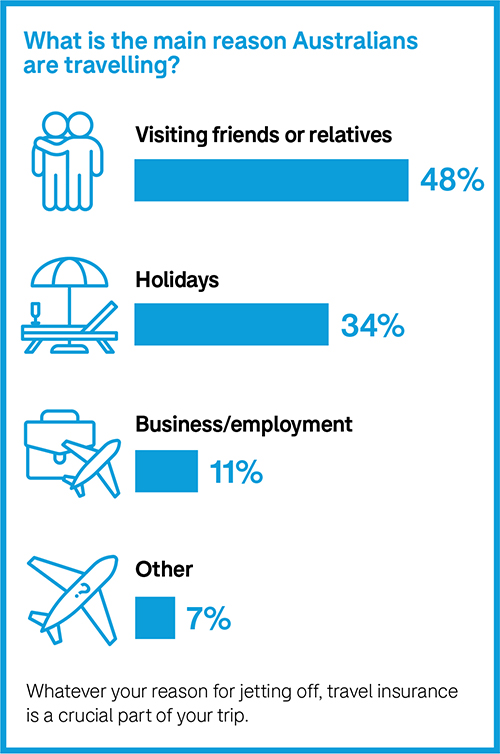
Reciprocal healthcare Australia has reciprocal healthcare agreements with several countries: Belgium, Finland, Italy, Malta, the Netherlands, New Zealand, Norway, the Republic of Ireland, Slovenia, Sweden and the United Kingdom. If you have Medicare, you can get subsidised treatment for essential services only in these countries, which often leads people to ask whether they still need travel insurance. The answer is yes, for the following reasons. You’re usually only covered for urgent care that can’t wait until you get home. If you’re very ill, travel insurance can pay for a medical escort to bring you home to Australia. You still may have to pay fees for treatment and medication. For example, in New Zealand reciprocal health care doesn’t cover you for free or subsidised care by a general practitioner or ambulance. Travel insurance can cover you for cancellations, delays, stolen items and more.
Remember to take your Medicare card with you. You’ll need it, along with your passport, to prove you’re eligible for reciprocal health care. For more information, visit servicesaustralia.gov.au .
Marco* had breathing difficulties on his way home from Europe, causing his flight to be diverted to the UAE. Hospitals in the UAE won’t admit you unless you have insurance or can pay an upfront fee. Marco’s family had to pay thousands of dollars for his treatment. *To protect privacy we have changed names and some details
Do you need domestic travel insurance?
Most of us already have medical cover at home, be it Medicare or private health insurance or both. But there are still a few key reasons to consider domestic travel insurance.
- Cancellation: If you’ve spent a lot on your holiday, then it’s not too much extra to buy travel insurance in case of the unforeseen.
- Baggage cover: If you’re travelling with valuables, think about whether you want them covered for theft, loss or damage.
- Car hire excess: You can save money using travel insurance to cover your collision damage excess, rather than paying the car hire company’s extra charge.
Does international travel insurance cover COVID-19?
Many travel insurers now offer limited cover for COVID-19, but the available cover varies quite a lot. Some policies only cover medical and repatriation costs if you get COVID-19 overseas, while other policies provide limited cover for cancellation costs in addition to medical and repatriation costs.
You should always check the details of your insurance coverage, particularly how it applies to COVID-19 and travel disruptions.
Over 90% of travellers will look for insurance that covers them for cancellation and medical expenses caused by COVID-19.
If you’re planning to go on a cruise, be extra careful. Some travel insurers may not offer COVID-19 cover for multi-night cruises or they may restrict the cover provided on cruises.
Also, don’t rely on the travel insurance on your credit card unless you check it closely – it may not cover claims related to COVID-19.
There are cooling-off periods for COVID-19 cancellation cover, so it’s best to buy your travel insurance at the same time as you book your trip. Some insurers may only cover cancellation if you test positive to COVID-19 and the policy was purchased more than 21 days before your scheduled departure date.
Make your travel plans COVID-safe
You need to be prepared for your travel plans to be interrupted at short notice. As travel insurance may not protect you from government border closures, general lockdowns or quarantine requirements in your destination country, the key is to book only with providers that allow you flexibility should things change.
- Check the rules for travelling to your destination. For example, are there any entry requirements? What are the vaccination requirements? And what type of travel insurance do you need?
- Read the terms and conditions of your airline, accommodation and travel tours before you book. Will they refund you if you can’t travel due to COVID-19? If they only offer a reschedule or a credit, will you be in a position to redeem the credit in future?
- You can book flexible tickets for flights but be aware you usually have to pay the difference between the prices for the tickets you bought and the new tickets. So changing your flight dates at short notice can be very expensive.
- If you book through a travel agent or booking site, what are their terms and conditions? Will they refund you or provide a credit? Are there cancellation fees?
- If you pay by credit or debit card (and you selected ‘credit’ when you paid), you may have access to credit card chargebacks if something goes wrong.
- Keep on top of the latest travel advice and requirements at smartraveller.gov.au . Travel restrictions can change at short notice.
- If you do have to cancel, your travel insurer will ask you to claim what you can back from travel providers first. Read the CHOICE advice on how to get your money back on travel cancellations and ask your travel insurer if you can get a refund or partial refund of your travel insurance premium.
You can buy travel insurance from a travel insurer, travel agent, insurance broker, credit card provider, or even from your health, home or car insurer.
You can buy travel insurance online (direct from the insurer’s website, from a comparison site or through an airline booking site), over the counter or over the phone.
Buy travel insurance as soon as you know your travel dates. That way you’re covered if your trip is cancelled before you even leave or if you’re unable to travel at all.
You can certainly buy travel insurance quicker than it will take you to read this guide, but do you know what you’ll be covered for? Will you be covered if you trip over after having a drink? If you crash your scooter in Thailand? If you lose your wallet during a stopover? If you need to isolate because you contract COVID-19?
There are a lot of ‘what ifs’ to consider, depending on where you’re going and what you’ll be doing, so it’s worth reading the product disclosure statement (PDS) first to make sure you’ll be covered.
Will you use it? Hopefully not, but research by Smartraveller found that one in 4 Australian travellers experienced an insurable event on their last overseas trip. Most common insurable events Flight or tour cancelled Flight delayed more than 12 hours Received medical treatment Lost, damaged or stolen luggage Missed a connecting flight Lost, damaged or stolen cash or personal items Forced to cancel trip before departure What if the insurers don’t pay out? Australian travellers lodged almost 300,000 insurance claims in 2018–19, the last financial year before COVID-19 travel bans. Almost 90% of those were paid out. Top four reasons for declined claims Due to policy exclusions, or not included in the policy conditions Claim amount was below the excess Claim was due to a pre-existing medical condition Claim was for an item that was stolen while it was unattended
1. Where are you going?

The level of cover and the cost of travel insurance can vary depending on the region you’re travelling to, and some risks may be of greater concern than others. Not all travel insurance policies cover COVID-19 and other pandemics or epidemics such as SARS. And not all policies cover you for changing your plans due to a riot or civil commotion, for example. Travel insurance also may not be available for countries with travel alerts.
- Look up your destination on smartraveller.gov.au and make sure you’re aware of any risks or safety advice.
- Buy a policy that covers you for every country you’re travelling to or transiting through. If you’re going to Europe via a one-night stopover in the US, then get cover for the US and Europe. Usually a worldwide policy will cover this.
86% of travellers say they’re more cautious after the COVID-19 pandemic about travelling to places where it could prove harder to return home in a crisis.
You need different cover for different regions
Insurers sometimes apply policies to regions rather than having a policy for each destination.
Asia Pacific: Destinations such as New Zealand, Bali, Fiji and Papua New Guinea.
Asia: Destinations such as India, Indonesia, Thailand, Singapore and Malaysia.
Europe: Destinations such as the United Kingdom, Ireland and Western Europe.
Worldwide: All of the above as well as regions such as North America, South America, Japan and Africa.
These definitions differ for each insurer. For example, several insurers cover travel to Bali under their Pacific policy, while some will only cover travel to Bali under their Asian region policy.
2. How long are you going for?

Just a quick trip? Simply buy a standalone travel insurance policy for a set number of days.
Travel often? Consider an annual multi-trip policy or a credit card with complimentary travel insurance, but make sure it gives you the cover you need.
Tip: Annual multi-trip policies and credit card policies can restrict the length of each trip you take – anywhere from 15 to 365 days depending on your policy. Some allow you to pay for extra days.
3. What are you going to do there?

Cruising the open road on a moped? Carving up the ski slopes? Partying at a wedding? These things aren’t necessarily included in a travel insurance policy.
Scan the insurer’s list of included activities and those that you’ll have to pay extra for. And take it easy on the grog – if your alcohol or drug intake is the cause of an adverse event, it won’t be covered by your policy.
4. Are you taking any valuable items?

Do you need cover for a digital SLR camera or an expensive tablet or laptop? Cover for such valuables can vary from a few hundred dollars to thousands, and higher cover will often mean a higher premium.
Consider adding cover for portable valuables to your home insurance policy instead, but check on the excess and if the policy will cover you worldwide and not just in Australia.
Policies also vary when it comes to how they cover valuable items. Valuables in your check-in luggage often aren’t covered, while cover for baggage stored in your hire car is inconsistent. And baggage left unattended is never covered, which can include a bag that is stolen from the seat beside you in a restaurant while you’re looking the other way.
Make sure you have receipts for your valuables as travel insurance will not pay if you can’t prove you own them.
5. Do you have any medical conditions?

If you have a medical condition that existed before you bought your policy, it may not be covered. This can range from something as common as allergies or asthma through to diabetes, heart conditions and knee replacements.
If you’re not sure, the best thing to do is contact the insurer to ask whether they’ll cover your condition automatically or whether you need to do an assessment.
The Massoud family* was holidaying in Singapore when 13-year-old Nazreen had a recurrence of severe bronchitis, which had affected her in Australia before their trip. The family’s travel insurer refused to pay any hospital bills as Nazreen’s bronchitis was a pre-existing medical condition. As a result, the Massouds had to ask their friends to transfer the $17,000 they needed to cover Nazreen’s hospital expenses, additional accommodation and the cost of changing flights. *To protect privacy we have changed names and some details
It’s important to compare policies for cost and cover. Some travel insurance premiums increased by as much as 30% between March and June 2022.
Three-quarters (77%) of travellers are willing to pay more for insurance that covers pandemic-related claims.
The further out from your departure date that you buy travel insurance, the more you’re likely to pay for it, but you’ll be covered from the moment you buy your policy. For example, if you buy insurance 2 months before you fly, you effectively have cheap cover for any events that affect your travel plans in those 2 months.
If you pay for your trip in full 6 months in advance, but you only buy an insurance policy 2 weeks before you depart, you may not be covered for any cancellation costs if you contract COVID-19.
Left it until the last minute, or even later? Only a few insurers let you buy insurance once you’re already overseas (look for the ‘Have you already left Australia?’ checkbox when viewing policy options).
While not all policies offer online discounts, plenty do. Make sure you understand the policy and what it covers. Sometimes (but not always) a reduced price may mean reduced cover.
Tip: Check asic.gov.au/afslicensing to find out whether the agent has an Australian financial services (AFS) licence or is an authorised representative of a licence holder. Take the usual precautions when giving your credit card and other details over the internet.
Member discounts
Does your health, car or home insurance provider also sell travel insurance? Some companies give 10–15% discounts to existing members.
Shop around
Trying to negotiate with a website will probably get you nowhere, but if you’re buying over the phone or through a travel agent, give it a go. Travel agents pocket a commission when they sell you insurance, so if you find a better deal elsewhere, ask them if they can beat it.
Almost two-thirds (62%) of overseas travellers who buy insurance do so on or before the day of booking travel.
Use your credit card
Some credit cards come with ‘free’ travel insurance when you use them to buy a ticket, pay for other travel expenses or otherwise activate it (we say ‘free’ because you’ll pay a premium in fees for the card itself).
This type of insurance can sometimes be a money-saver, and the level of cover can be just as good or even better than standard insurance, but make sure it gives you the cover you need.
Compromise on cover
While good medical cover is always essential, you could save money on your premium by choosing a policy with lower or variable cover for cancellation, delays and lost baggage, especially if you aren’t spending big on your holiday or taking expensive items with you.
Have you read the Product Disclosure Statement (PDS)? According to research conducted in 2022, of those who bought travel insurance: 45% have skim-read the PDS 43% have read the PDS in detail 8% have left the PDS to another person on the policy to read 2% have not and will not read the PDS 2% don’t know
About that fine print
You’re about to click ‘buy’, so you may as well just tick this ‘I acknowledge I’ve read the product disclosure statement’ checkbox and bon voyage…
But wait – have you checked the fine print? In the insurance world, that ‘fine print’ is contained in the product disclosure statement, or PDS (that thing you said you’d read).
How to read the PDS
There are hundreds of policies out there and if you tried to read all the paperwork that comes with each policy, you’d have to extend your holiday just to recover.
If you don’t have time to read the whole PDS cover to cover, at least look for the following.
- The table of benefits is an overall summary of your cover.
- The policy cover section is essential reading and is generally split into ‘what we will pay for’ and ‘what we won’t pay for’.
- General exclusions are also essential reading – these are events that aren’t covered by any section of the policy.
- Pre-existing conditions can remind you of forgotten ailments and are essential reading for anyone with any kind of medical condition, no matter how mild.
- The word definition table might contain a few surprises – it’s a good place to check on the definition of a ‘relative’ or a ‘moped’, for example.
- The claims section lists some further pointers to be aware of (e.g. it’s a good idea not to admit fault or liability in the case of an accident) and the paperwork you may need to collect while you’re away if you need to make a claim, such as police reports.
- COVID-19 cover section – many policies have a special section listing medical, cancellation and other cover available for COVID-19.
- The 24-hour emergency assistance contact number (write it down and keep it handy).
The Weaver* family was relieved to have travel insurance when they needed to cancel their holiday. The family wanted to go skiing in New Zealand, but a few days before they were due to depart, 12-year-old Ruby had cold symptoms. A COVID-19 test showed she was positive. Ruby and her whole family had to isolate and their travel insurance paid their cancellation costs. *This is a fictitious but realistic example
The list of travel insurance disputes taken to the Australian Financial Complaints Authority (AFCA) reveals a battlefield of unread or misinterpreted terms and conditions. Between 1 July 2020 and 30 June 2021, AFCA received more than 2,000 travel insurance complaints related to COVID-19.
Not all travel insurance policies are the same, and the wrong policy can be almost as bad as none at all.
Peter* and his business partner had booked a business trip to South Korea and Japan from 21 February 2020 to 2 March 2020. On 20 February, Peter cancelled the trip on advice of his GP who said that due to the uncertainty of the extent of the COVID-19 outbreak, he should postpone the trip until it is safe to travel. Peter’s travel insurer denied his claim, saying the policy does not provide cover for cancellation due to medical advice. Peter made a complaint and AFCA ruled in his favour as COVID-19 had been publicly announced as an epidemic prior to Peter cancelling the trip and the doctor’s advice not to travel was prudent and reasonable. *To protect privacy we have changed names and some details
Checklist – Are you covered for COVID-19? Are your medical costs covered if you contract COVID-19? Are your extra expenses such as accommodation covered if you can’t travel or your stay gets extended because you or your travelling companion tests positive to COVID-19? What happens if you were going to stay with someone but they’ve contracted COVID-19? Or your accommodation or tour company gets closed down because of COVID-19? Are your additional expenses covered? If the Smartraveller alert level is raised to ‘Reconsider your need to travel’ or ‘Do not travel’ due to a COVID-19 outbreak at your destination after you took out travel insurance, are you covered if you cancel your trip? Are your cancellation costs covered if you can’t travel or can’t return on your booked flights because you or your travelling companion contracted COVID-19? Are you covered for cancellation costs if your business partner or a relative back home gets sick with COVID-19 and you need to return earlier than planned? If you’re planning to go on a cruise, be extra careful. Some travel insurers may not offer COVID-19 cover for multi-night cruises. Are you covered for claims caused by government travel bans, border closures, or mandatory quarantine or self-isolation requirements at your destination?
And what are the catches?
Cancellations, baggage and personal items, sports and activities.
This is the number one reason to buy international travel insurance. Look for the insurer’s benefits table, usually on the quotes screen online or near the front of their PDS, for a quick overview of what they’re offering. Most policies have an ‘unlimited’ sum insured.
Pre-existing conditions
Some insurers don’t cover pre-existing conditions at all. Some will only cover pre-existing conditions with an extra fee and sometimes a medical assessment. Some automatically cover pre-existing conditions listed in their PDS, although few will cover mental illnesses such as depression or anxiety.
Insurers exclude cover for certain pre-existing medical conditions and generally don’t provide cover for any illnesses or incidents that arise from these. This includes terminal illness or any illness that shortens your life expectancy as well as organ transplants.
Minor pre-existing medical conditions such as asthma, hypertension, diabetes, epilepsy, osteopenia and more are usually covered if:
the condition has been stable for more than 12 months
there is no planned surgery
you have not received treatment in the past 12 months.
Pre-existing condition spoiling your holiday plans? findaninsurer.com.au lists insurers that may provide cover for pre-existing conditions. Still having trouble finding cover? Enlist the help of an insurance broker.
Examples of conditions that usually need to be assessed before getting cover are coronary problems, lung disease, epilepsy, stroke or any surgeries in the last 2 years.
If in doubt, declare your condition to your insurer.
A disability shouldn’t prevent you from buying travel insurance, but it might make finding a good policy trickier and more expensive.
Is a disability a pre-existing condition?
It depends on the disability and the insurer. Many insurers will automatically cover travellers with limited mobility, cognitive impairments or vision/hearing impairments. But in some cases, this cover may come at an extra cost.
Check with the insurer, as some conditions will need to be assessed on a case-by-case basis.
Having trouble getting cover?
Under the Disability Discrimination Act, insurers must assess the actual risks, rather than make assumptions about disabilities. If you’re having trouble getting insurance, a letter from a medical professional might help, particularly if they can state that you’re not likely to need medical or hospital treatment while on your trip.
Cover for your equipment
If you’re travelling with a wheelchair, mobility aid or hearing aid, you’ll need to insure that as well. Check single item limits, which are usually between $750 and $1,000 per item. If you have a piece of medical equipment that exceeds this, you’ll need to specify it and insure it separately.
Many insurance policies exclude hearing aids, so check the fine print and take out extra insurance if necessary.
Cover for your carer
If you’re travelling with a carer, it’s a good idea to be on the same policy in case travel plans change for either of you – that way you’re both covered. If you have a paid carer, ask your insurer whether they’ll cover the cost of a replacement carer should yours be unable to travel.
Babymooning
If you’re travelling while pregnant, be sure to check the following.
- Are you covered for pregnancy complications? Some insurers don’t cover pregnancy at all.
- Up until which stage of pregnancy? Pregnancy complications are usually only covered up until a certain stage (often between 23 and 32 weeks, depending on the insurer).
- Childbirth: Not all insurers will cover childbirth. A premature birth in the US with intensive care and treatment could end up costing hundreds of thousands of dollars.
- IVF: Not all insurers will cover IVF pregnancies.
- Do you have to pay extra to be covered?
- Do you need medical approval to be covered?
Mental health
Many travel insurers won’t provide cover of any kind for hospitalisation, medication or missed travel caused by a mental health condition, whether that’s depression, anxiety or a psychotic episode.
Others will provide cover if you declare mental illness as a pre-existing condition and pay a higher premium. Check the PDS carefully; insurers may use different terms to describe the same mental health conditions, giving them wriggle room to deny a claim.
Insurers are highly unlikely to pay a mental health-related claim if they discover it was a pre-existing condition that you didn’t declare. The trouble is, an insurer might view a single visit to a therapist many years ago because of work stress, for example, as a pre-existing mental health condition.
Mental health and travel insurance have been a contentious issue for consumer rights groups including CHOICE – and it’s one that’s still evolving from a legal standpoint.
To find out if a travel insurance product includes mental health cover, check choice.com.au/travelinsurance , filtering for ‘mental illness related claims’. Then put the PDS under the microscope.
A woman in Victoria won a court case against her insurer after they declined her claim for the cancellation of an overseas trip due to depression. ‘We took out the travel insurance well in advance of the travel, and well before my depression. I was certainly under the impression that I was covered,’ she told CHOICE. ‘They just sent back a letter that said no.’ But her win (the Victorian Civil and Administrative Tribunal awarded her $4,292 for economic loss and a further $15,000 for non-economic loss) was an isolated ruling. It’s still being debated whether or not a general exclusion for mental health claims is legal.
Most policies have an age limit, ranging right up to the 100-year-old seasoned adventurer. There are quite a few catches for older travellers, though.
- Higher premiums: Insurers often charge older travellers more, and in some cases ‘older’ can be as young as 50.
- Higher excess: Travellers as young as 60 but more commonly over 80 may be subject to a higher excess because of their age. The normal excess of around $100 to $200 is often increased to an excess of $2,000 to $3,000 for travellers 80 years and over for claims that relate to injury or illness.
- Restricted conditions: Subject to medical assessment’, ‘reduced medical cover limits’, ‘reduced travel time’, ‘policy to be purchased 6 months in advance’ – all of these conditions can apply to travellers over a certain age.
You’ll probably want to be covered if your travel plans are cancelled for any reason, but be aware that insurers will come up with plenty of excuses to avoid paying up.
- Terrorism: Most insurers cover medical expenses but very few cover cancellation expenses in the event of terrorism.
- Pandemic or epidemic: Commonly excluded.
- Military action: Commonly excluded.
- Natural disaster: Covered more often than not.
- Travel provider/agent insolvency: Commonly excluded.
- Cancellation due to travel provider’s fault: Insurers commonly exclude cover for delays or rescheduling caused by the transport provider.
John* and his partner’s scheduled train service was delayed, seriously diverted, then terminated, which meant they missed their flight home by several hours. Re-booking fees, emergency accommodation and related fees cost them between $1,000 and $1,500, but the insurer wouldn’t pay the claim as it wasn’t in the policy. *To protect privacy we have changed names and some details
‘Unforeseen’
When an insurer refers to cover for ‘unforeseen circumstances’, it means something that wasn’t publicised in the media or official government websites when you bought the policy. Check the Smartraveller travel advice when you buy your travel insurance. If it became known before you bought the policy, you’re not covered. So the earlier you buy travel insurance, the more likely you are to be covered for the unexpected.
Exclusions and inclusions
When the Australian Financial Complaints Authority (AFCA) looks at a complaint about an insurer, they expect you to prove the claim is covered by the policy, while the insurer must prove the claim is excluded by the policy. Specifically, AFCA expects you to ‘establish on the balance of probabilities that you suffered a loss caused by an event to which the policy responds’. That is, do you have a valid claim?
This means that you need to understand if your claim is covered under the listed events of the policy, or that it is not specifically excluded by the policy.
If, for example, you have cover for COVID-19, you aren’t covered for every event caused by the pandemic, but just by what is specifically stated in the PDS.
Margaret and Peter* booked a cruise departing from Darwin in March 2021. Shortly before departure, the Northern Territory Government issued a directive no longer allowing cruises to depart from the NT. Margaret and Peter’s cruise company arranged for the cruise to depart from Broome and flew the passengers to Broome for a cost of $300 per person. As Margaret had bought a policy that included some cover for COVID-19, she made a claim for $600. But this was denied by her travel insurer and her subsequent complaint to AFCA was unsuccessful. AFCA said, ‘The cause of the loss was a government directive to not permit the cruise to operate through the NT port. The insurer’s policy provides no cover for these circumstances. It also excludes losses arising from government intervention, prohibition or regulation.’ *To protect privacy we have changed names and some details
Travel insurance and Smartraveller advice Smartraveller, managed by the Department of Foreign Affairs and Trade (DFAT), assigns an overall advice level to more than 175 destinations. This advice level can affect your travel insurance cover. The advice levels are: Level 1 – Exercise normal safety precautions. COVERED. Level 2 – Exercise a high degree of caution. COVERED. Level 3 – Reconsider your need to travel. CHECK. Level 4 – Do not travel. USUALLY NOT COVERED. Travel warnings can work in your favour. If an insurer excludes cover for an event, they may still cover you to change your plans in response to updated advice from Smartraveller. But beware when travelling to a destination that has a ‘Do not travel’ warning. Most standard policies won’t cover you for ‘Do not travel’ destinations, including for COVID-19. A week after a volcanic eruption made world news, Sameer* booked a trip to Bali. He assumed the emergency would be over by the time he was due to fly a month later. Unfortunately, the volcano continued to erupt and Sameer’s flight was cancelled. His insurer declined his claim because he’d bought the flight and insurance after Smartraveller issued a travel alert about the volcanic eruption, and after it had been in the news. *To protect privacy we have changed names and some details
Delays can be expensive, particularly if you have to pay for alternative transport or accommodation. And those extra expenses won’t always be covered.
- Transport delay is only covered after a certain number of hours, usually 6, but you may have to wait as long as 12 hours before your cover kicks in.
- Cover limits for transport delays are typically lower than other cover limits and are often limited per 24-hour period.
- Insurers often exclude cover for rescheduling caused by the transport provider but some may cover additional accommodation and travel expenses in this scenario for travellers who are en route.
Baggage cover varies widely, with travel insurance policies ranging from $0 to $30,000. So, if you’re not carrying expensive items, you may be able to save on your premium by selecting a policy that provides lower coverage.
- Individual items are subject to sub-limits that range from around $250 to as much as $5,000.
- Higher item limits usually apply for electronic items like laptops, cameras, smartphones and tablets.
- You can pay extra to specify items you want extra cover for (insurers are always happy for you to pay extra).
- Valuables locked in a car or checked in on an airline, train or bus may not be covered.
- Generally, any items left unattended may be excluded from cover, so keep your belongings close.
Jing* sat down to try on a pair of shoes in a busy London shoe shop, placing her handbag next to her on the seat. When she stood up to leave, she discovered her bag was gone. Her insurer refused to pay up because she had left her bag unattended in a public place. *To protect privacy we have changed names and some details
Lost luggage
If an airline loses your luggage temporarily and doesn’t compensate you for that loss, you may be able to claim expenses for clothing, toiletries and other necessities, depending on your policy.
- Cover usually only applies to luggage lost for more than 12 hours, though the minimum time limit varies per insurer, as does the level of cover.
- If your policy has an excess (a fee that’s deductible from your payout), remember that this applies once per claimed event, and items below the excess level can’t be claimed.
Angelo and Diane* tried to claim $112 for meals and drinks when their connecting flight to Hawaii was delayed by 8 hours. Although their policy technically covered them for the cost, they were liable for an excess of $250, so their claim was denied. *To protect privacy we have changed names and some details
If you don’t feel like paying the ‘extra insurance’ the car hire company charges, then use the collision damage excess cover in your travel insurance.
Tip: Stick with recognised car rental companies in this case since this cover only applies if the car hire company already has its own comprehensive insurance.
Do you have the right licence?
Some countries require you to have an international driving permit. If you have an accident while driving on the wrong licence (or breaking that country’s law in any other way), you may not be covered.
Cruise-specific insurance
Cruises aren’t automatically included in all travel insurance policies. If you’re going on a cruise, make sure you have the right cover.
The Department of Health says: ‘Cruise ships carry a higher risk for spreading disease compared to other non-essential activities and transport modes. COVID-19, influenza and other infectious diseases such as gastroenteritis spread easily between people living and socialising in close quarters.’
Check travel insurance policies to make sure medical cover for COVID-19 is included, as some policies exclude this cover. Erica* stumbled and broke her femur during stormy seas while on a cruise. Her insurer covered the cost of evacuation and a partial hip replacement at a hospital in Noumea. They also organised and paid for her son to fly to Noumea to help her recover and return home to Australia. Five months later, the well-travelled 82-year-old was boarding a plane to Croatia for her next (fully insured) adventure. *To protect privacy we have changed names and some details
Not leaving Australian waters?
You still need insurance. Doctors working on cruise ships don’t need Medicare provider numbers, so if they treat you, you can’t claim on Medicare or your private health insurance, even if you’re still in Australian waters.
Domestic travel insurance doesn’t cover medical costs, so you need either international travel insurance (check that it covers domestic cruises) or a domestic cruise policy.
Kerry* thought she’d done the right thing buying an annual multi-trip international travel insurance policy for a number of upcoming holidays, one of which was a round-trip cruise departing from and returning to Fremantle, Western Australia, with no port stops. When she had to cancel due to ill health, she discovered her policy wouldn’t cover her because the trip wasn’t considered an international one. *To protect privacy we have changed names and some details
When CHOICE compares travel insurers, we look at who covers which sports and adventure activities, such as skiing, ballooning, bungee jumping and scuba diving, to name a few.
But as always with insurance, the PDS may include some surprises. For example, several insurers we’ve reviewed will cover canyoning but they won’t cover abseiling, often a necessity in canyoning. Other policies in our comparison will cover abseiling, but not into a canyon.
If you’re planning on doing anything adventurous, check to make sure you’re covered. It’s not enough to simply look for the tick next to your chosen activity – you also need to check the definitions in the PDS.
Motorcycles and mopeds
Hiring a motorcycle or moped? Depending on which country you’re in, you might need a local or international motorcycle licence. You probably won’t be covered if you aren’t obeying the local law. And even if you are doing the right thing under local law, some policies still won’t cover you unless you have a motorcycle licence.
Are you wearing a helmet? Most countries say you need one by law, but that doesn’t mean it will be included in your hire. No helmet means no cover (in more ways than one).
Nhung* was injured after she rented a moped in Thailand only to find out the engine size was not covered by her insurance policy. Most insurers adopt the national standard for the definition of a moped – an engine capacity under 50cc. If the engine is bigger than that, it’s a motorcycle and you’ll need an Australian motorcycle licence. *To protect privacy we have changed names and some details
Skiing and snowboarding
Some insurers cover skiing, often for an extra premium, but not so many cover skiing off-piste (away from the groomed runs). So, if you’re tempted to slide off the beaten path next time you hit the slopes, make sure you have a policy that covers off-piste ski runs (or pay for the optional extra cover).
Otherwise, if you run into a tree and have to be evacuated from the mountains, you may need to think about selling your home to pay for it.
It’s worth remembering that travel insurance only covers overseas costs. So if you break a leg while you’re abroad, your insurer will likely pay your hospital fees, but they won’t cover your ongoing physiotherapy once you’re back home.
Marianna* fractured her leg in 3 places while skiing with her partner and children in Japan. Because the family had bought additional cover for winter sports, they were reimbursed $35,466 for medical expenses, additional transport and accommodation, the cost of a nanny to look after the children, and business class flights back to Australia. *To protect privacy we have changed names and some details
Alcohol and drugs
Overdoing it on vodka and float-tubing down a river isn’t likely to be covered by any policy. Insurers simply won’t pay for costs arising from you being under the influence of alcohol or drugs (except where taken under the advice of a doctor).
Even one or 2 drinks could be enough of an excuse for insurers to get out of paying.
Relatives can be relative Many policies cover the costs to travel home if one of your relatives dies or becomes sick. Bear in mind: an insurer’s definition of a ‘relative’ may differ from yours cover is usually dependent on the age of that relative, so the death of your 84-year-old grandma may not be covered your relatives are subject to the same pre-existing condition exclusions as you, so if your 84-year-old grandma died from a known heart condition, you may not be covered. you may be able to apply for your relative’s pre-existing condition to be assessed before you buy the policy. cover is limited to relatives that live in Australia, or in some cases New Zealand. So if your 84-year-old grandma is in China, you won’t be covered to fly there for her funeral. Amanda* and her husband had booked an overseas diving trip, but shortly before the trip Amanda’s mum passed away from pneumonia. They cancelled their trip and incurred cancellation costs and lost deposits of nearly $13,000. As the death of a parent was covered in their policy, Amanda made a claim. Their insurer denied the claim as Amanda’s mum lived in the United States and was undergoing treatment for lung cancer, so the insurer concluded that her death was caused by a pre-existing condition. *To protect privacy we have changed names and some details
So you’ve booked and paid for your holiday through a travel agent, but then the travel agent goes broke. You’ll get your money back, right? Not necessarily.
Only a few insurers will cover you for the insolvency of a travel provider, and that includes hotels, airlines and other transport companies that might go broke overnight (remember Ansett?). But there are a few ways to safeguard your hard-earned holiday.
- Check whether your insurer covers you for insolvency.
- Check whether your travel agent has insolvency insurance (this isn’t compulsory, so only some will have it).
- Pay with your credit card. Some banks allow a chargeback if you pay for something on your credit card and don’t end up actually getting it.
Tip: Don’t accept any dodgy contract terms that require you to give up your chargeback rights.
2 out of 3 travellers assume their travel insurance will cover insolvency, but in 2017 less than a third of insurers actually provided this cover.
Credit card travel insurance
Some credit cards come with complimentary travel insurance. They’ll cover you for all the usual things like medical emergencies, cancellation and protection for baggage and items. But they do differ from standalone policies, so it’s essential you check the fine print.
- Fees: You’ll pay a premium for these credit cards, usually between $100 and $450 per year.
- Excess: The excess on credit card policies tends to be fixed at a higher rate (usually around $250), whereas it’s more variable on standalone policies.
- Age limits: Some credit card policies have no age limit, which can be handy for older travellers.
- Regions: Credit card travel insurance is not based on location, which means you can travel from Europe to the US without having to worry if your policy covers both areas. Bear in mind though that some regions (such as countries under United Nations embargo) may be excluded, and sometimes with US underwriters, travel to Cuba is excluded.
- Baggage cover: Credit card insurance often offers higher coverage for baggage loss and damage.
- Trip duration: Credit card insurance policies vary in how many days of coverage they’ll give you per trip – anywhere from a few weeks to 365 days – so check your limit if you’re going on a long holiday.
- Pre-existing conditions: Chances are your credit card insurance won’t automatically cover your pre-existing condition. You’ll need to call your insurer and see if you need to pay an extra fee or premium.
- Domestic travel: Credit card insurance doesn’t apply to domestic travel, although some cards will reimburse expenses associated with domestic flight delays and missed connections to international flights.
- Making a claim: You may not be able to claim reimbursement unless you pay for purchases (such as emergency items after a baggage delay) with the same credit card.
27% of travellers who plan to buy travel insurance will get it through their credit card.
Is it activated?
Credit card insurance usually activates when you buy your air tickets (or sometimes other transport or accommodation expenses) using your card.
- Policies require a minimum spend to activate – usually around $500. So if you scored your tickets on sale for $499, you won’t be covered.
- If you want cover for your spouse or dependants, you must also buy their tickets on your card.
- Some policies only activate if you book a return ticket. A one-way flight, or even 2 one-way flights, will leave you uninsured.
- Some banks require you to notify them in order to get full coverage for each trip. While base coverage will still give you emergency medical treatment, you might not get coverage for property damage or luggage delays. Check whether you need to do anything to activate any extra features.
- Some cards will cover you if you use rewards points to buy your tickets. Others won’t.
Is it worth it?
If you already have a credit card and use it regularly, the free comprehensive travel insurance on your card can save you money. And if you’re a regular traveller without a credit card, it’s worth considering if you travel at least once a year or every second year internationally.
David* booked a trip to North America for himself and his family, including his 11-year-old daughter Petra. The trip was cancelled because Petra got pneumonia. Unfortunately, David only activated his credit card travel insurance about an hour before the family was scheduled to fly out of Australia. The travel insurer denied his claim for cancellation costs because he knew about his daughter’s illness when he activated the policy. *To protect privacy we have changed names and some details
Have you been knocked back on an insurance claim and want to dispute it?
Internal dispute resolution
Complain to the insurer first. They’ll usually keep you up to date about the progress of your complaint every 10 business days.
Once you’ve lodged your case and all the supporting information and documents, the insurer has 45 days to complete its internal dispute resolution process.
External dispute resolution
If you aren’t happy with the insurer’s decision, you can take your complaint to the Australian Financial Complaint Authority (AFCA). They’ll handle your case for free.
- The AFCA will mediate between you and the insurer to find a resolution.
- If mediation is unsuccessful, they may make a preliminary assessment or give a determination straight away on your dispute.
- A determination is legally binding on the insurer but not on you.
- There’s no appeal process with AFCA.
- For more information, visit afca.org.au .
Legal action
If you’re unhappy with the AFCA determination, you might want to consider taking legal action against the insurance company.
Keep your travel insurance details with you at all times while on your trip and share them with family or friends before you leave.
Related content
No matter who you are, where you're going and what you're doing, get travel insurance. Learn how to choose a policy that's right for you.
This page provides mature travellers with information to prepare for a hassle-free journey. Properly preparing before you travel will help you have a safe trip.
Browse our general advice pages on a range of travel topics, to learn what you need to know before you go.

Critical Financial
17 Things Americans Need to Avoid at All Costs When Traveling Abroad
Posted: April 25, 2024 | Last updated: April 25, 2024

Whether you’re taking a short vacation to a new country or traveling for a longer period of time, you want to get the most out of your trip. Avoid these 17 common mistakes to make sure you soak up all the culture while avoiding embarrassing errors.
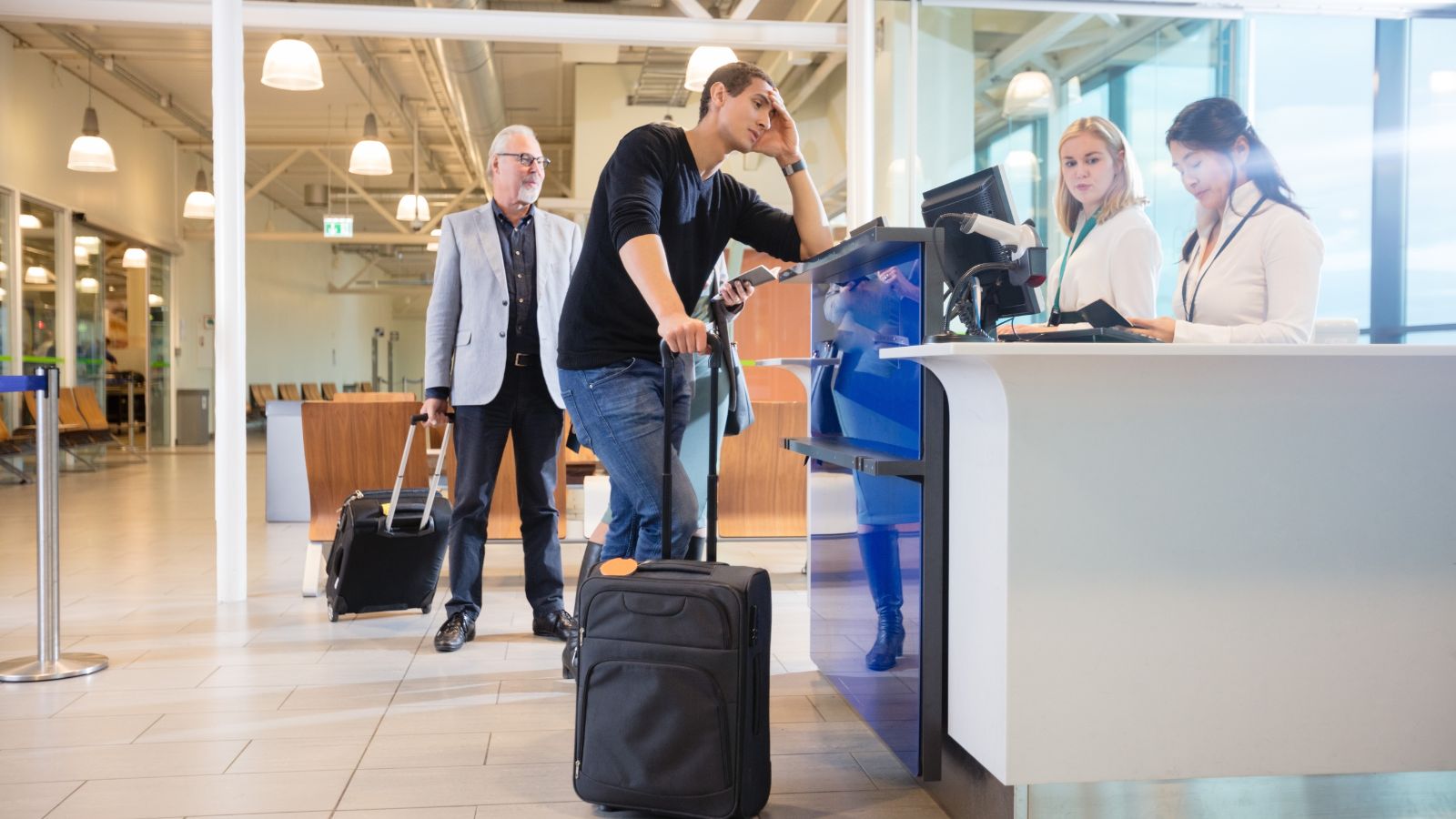
Disrespecting Local Customs and Traditions
When you are traveling to a different country, it is important to take time to educate yourself on local customs so you don’t offend or disrespect locals. Consider how you dress, as in some traditional or religious settings there may be rules on what is appropriate, and try to interact with the locals as they interact with one another.
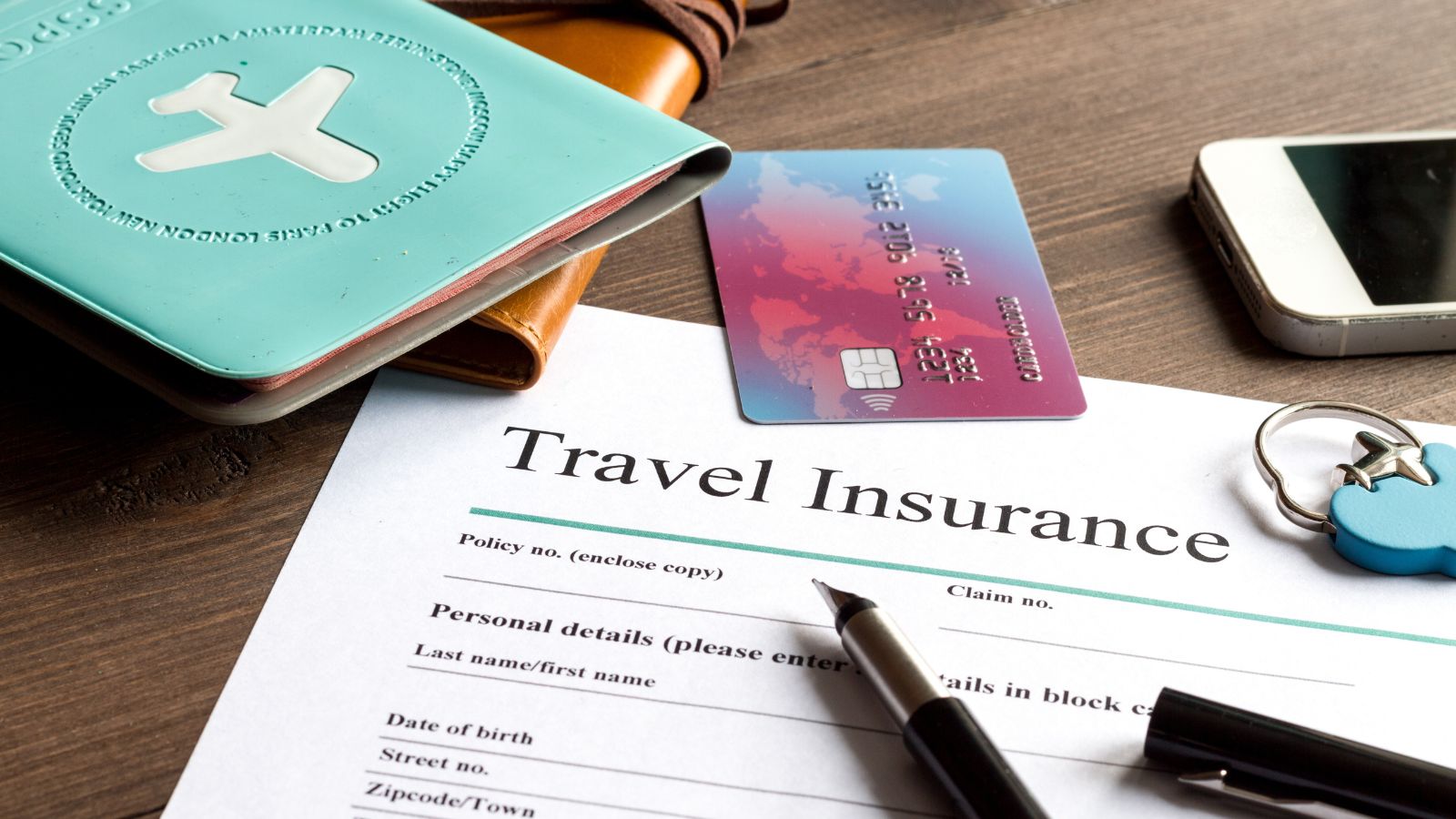
Skimping on Travel Insurance
According to Money Helper , “Travel insurance provides financial protection if you face certain problems when you’re traveling or on holiday. It covers a range of possibilities, from lost luggage to the cost of medical care if you become ill or have an accident.” Take time to read through your policy documents so you know what you’re covered for.

Ignoring Local Laws and Regulations
Some countries have different rules and laws, and you don’t want to be caught doing something illegal simply due to a lack of research. Consider local road rules, including pedestrian rights and public transportation rules; ensure your visas are correct; and make sure you respect laws surrounding how you act in public.

Overlooking Dietary Restrictions and Preferences
If you plan on eating out at local restaurants, it can be helpful to research popular dishes to understand the ingredients that might be included. That way, you can avoid any allergic reactions or dietary conflicts. It is also respectful to research the customs around local meal times and dining etiquette.

Neglecting Personal Safety
Make sure you keep your belongings safely attached to you, and try not to take too much cash out at once. Allianz Assistance says if you do become a victim of crime, “Make sure you report the crime as soon as possible and ensure you receive a police report.” By doing this, you’ll be in the best position to make a claim on your insurance.

Failing to Respect Environmental Guidelines
Another way to show respect for locals and communities is to follow their environmental practices. Make sure you segregate your waste as they do, and observe guidelines when it comes to interacting with wildlife. You can also support local sustainability initiatives by choosing eco-friendly accommodations and shopping with sustainable businesses.

Overlooking Communication Nuances
Some cultures have a direct way of communicating; others are more subtle. By researching and adapting to this, you’ll enhance your mutual understanding of business owners and other locals you come across. Consider etiquette around the use of mobile phones, speaking volume, and public behavior.

Disregarding Local Transportation Etiquette
Every culture has different norms when it comes to public transportation, and making sure you research these can prevent any embarrassing situations. Consider the customs around queuing in line, noise levels, and seat allocation, and if you’re using taxis, it’s worth knowing the practices around fare negotiation.
![Forgetting to Adapt to Local Etiquette <p>According to the <a href="https://www.tradecommissioner.gc.ca/guides/spotlight-pleins_feux/intercultural-business-interculturelle-des-affaires.aspx?lang=eng">Government of Canada</a>, before you go away, “look into the differences and the similarities between your own culture and the host culture to understand where to adapt your behavior…. Find a balance between assimilating to the new culture and maintaining [your] own cultural identity.” Mastering basic greetings and phrases and looking into any cultural or social events taking place in the country is a great way to start.</p>](https://img-s-msn-com.akamaized.net/tenant/amp/entityid/BB1kv0Yl.img)
Forgetting to Adapt to Local Etiquette
According to the Government of Canada , before you go away, “look into the differences and the similarities between your own culture and the host culture to understand where to adapt your behavior…. Find a balance between assimilating to the new culture and maintaining [your] own cultural identity.” Mastering basic greetings and phrases and looking into any cultural or social events taking place in the country is a great way to start.

Underestimating Cultural Significance
Local arts and historical landmarks can be of extreme cultural significance, so it’s important to avoid disrespectful actions or speech at these places. It’s also nice to show locals that you enjoy their culture by participating in festivals or traditions.

Ignoring Health Practices
To make your trip as comfortable as possible, it’s a good idea to research recommendations on consuming tap water or specific foods to avoid health issues. It’s also sensible to carry any vaccinations or medications you might require for the destination.

Not Understanding Service Etiquette
You might be used to a certain type of service, but norms in hospitality and timeliness vary across countries, so try to remain patient if it’s not what you’re used to. If you face a challenging situation, remain kind and avoid offending locals by making negative comparisons to your home country.

Mismanaging Money and Currency
It’s important to take time to understand exchange rates to stay on budget, as well as research the best way to spend while away. The Independent says, “Using a credit card to pay for purchases while traveling can be a safe way to spend, but without the right card, the charges can swiftly rack up.”

Not Preparing for Connectivity Issues
If you require internet access while you’re away, it’s a good idea to research the connectivity in the area to avoid disappointment when you get there. It’s also helpful to make alternative arrangements in case you can’t connect to the internet, including offline maps and local SIM cards.

Overlooking Local Time and Punctuality Norms
Working hours and meal times vary across the globe, so it is helpful to adapt your lifestyle to fit with this so that you don’t face disappointment when it comes to restaurant or shop opening hours. It’s also a good idea to observe the locals’ attitudes toward timeliness and align with this.

Failing to Respect Personal Space and Privacy
Personal space preferences can vary between cultures, so try to observe and mimic practices in lines and crowded places to maintain respectful distances and avoid discomfort. It is also important to avoid asking intrusive questions or taking actions that might invade privacy or personal boundaries.

Neglecting to Appreciate Local Hospitality
By expressing genuine gratitude for local hospitality, you’ll build a rapport with people and show respect for their culture. Engaging openly with locals and showing respect for their way of life will leave them feeling respected and enrich your travel experience.

Read More: 18 American Phrases That Non-Americans Struggle to Understand
American expressions are a vital part of its culture, reflecting the nation’s history and values. However, these sayings can sometimes puzzle people from other countries because they often carry context, colloquialisms, and historical references that can lose their intended meaning when crossing borders. Let’s look at 18 of such American sayings.
18 American Phrases That Non-Americans Struggle to Understand

18 Reasons Why No One Is Interested in Working Anymore
The concept of traditional employment has taken a back seat in recent times with changes in economic and social factors, as well as individual preferences. Traditional jobs have also evolved, and many people don’t feel the need to take this route anymore. These are 18 reasons why no one is interested in working anymore.

17 States Americans No Longer Want to Live In
America is constantly changing, and within it, so are its states. Some have new laws that residents don’t agree with, while others have increasing rates of unemployment or areas of extreme poverty. These aspects make it difficult for a person to stay in their home state. Here are 17 states that Americans are deciding to reconsider.

17 Things That Are Sadly Disappearing From Everyday Life
Life in modern times seems to evolve at an unprecedented pace. Certain things we couldn’t live without a few years ago are rapidly becoming redundant. Let’s take a peek at 17 such victims of modernization and why they’re slowly but surely disappearing.

15 Ways To Tell If Someone Is Not a Good Person
While it’s important to avoid quick judgments, certain behaviors can be strong indicators of a person’s character. Here are 15 ways to discern if someone might be a bad influence or possess harmful traits.
More for You
A California woman bought a vacant lot in Hawaii and discovered a $500,000 house was built on it without her permission
Trump campaign accused of breaking federal law by hiding millions in legal payments
29 common human foods you may not realize are poisonous to your dog
How Much Beer You'd Have To Drink To Equal A Single Shot Of Liquor
Megan Fox Signs With UTA
Shaq hilariously taunted Charles Barkley with his cash after winning their bet on Heat and Celtics
18 Vintage Boy Names No One Else Is Using Yet
NYPD responds to AOC, says officers 'have to teach' anti-Israel mobs the 'consequences of their actions'
28 celebrities you probably did not know are nonbinary
Harvard psychologist shares 5 toxic things 'highly narcissistic' people always do in relationships
13 Beloved Actors We Forgot Started Out As Child Stars
Steelers make notable decision on QB Justin Fields
'10-foot-tall people' discovered by archaeologists in Nevada cave
Kevin Porter Jr. Is Currently Playing In Greece For $10K Just One Year After Losing Majority Of $82.5 Million Contract
Fani Willis Gets a Boost Out of Georgia
10 Countries To Live Outside the US That Are So Cheap You Could Quit Your Job
Average US annual salary by age revealed – see how you compare
30 food items that you might not know are banned in America
People Who Don’t Show Empathy Usually Have These 18 Traits
Better get a quarterback in the NFL Draft now, because the 2025 class SUCKS
- United States
- United Kingdom
Can travel insurance cover conflicts abroad?
The ongoing conflict in the Middle East may disrupt travel. Here's what you need to know.
Airlines across the world are being affected by the escalating conflict in the Middle East, with more delays and disruptions expected following Iran's retaliation against Israel.
33% of Australians are planning an international holiday in the next 12 months, according to Finder research – equivalent to 6.9 million people. Many connecting flights pass over or stop in regions now considered at greater risk.
Do travel insurance policies ever cover cancellation due to war?
Travel insurance won't cover you for events related to the ongoing conflict, or any conflict for that matter.
Acts of war and political unrest are never covered by travel insurance before or after you leave. This is an exclusion in the majority of policies.
We looked at 22 travel insurance product disclosure statements. Acts of war were general exclusions in all.
Common general exclusion:
"We will not cover any claim arising from or related to any act of war, whether declared or not, or from any rebellion, revolution, insurrection or taking of power by the military."
Cancellation of flights and accommodation
However, there may be some alternatives. Your travel operator may provide a refund for cancellations they make as a result of these events.
For instance, many travel suppliers are waiving change fees and offering refunds or credits for future travel when travelling to certain countries, specifically those directly involved in the conflict.
It's less likely however that you'll be able to get a refund for travel to a country that isn't involved in the conflict at this time.
There are options for you still though.
"I was planning on travelling to Germany for Christmas, and I'll definitely be booking flights and accommodation with cancellation options now," says Finder insurance expert Tim Bennett.
"If travel insurance won't cover the costs if this escalates, then I think it's worth my while paying a bit extra for the flexibility."
Customers travelling within Do Not Travel (DNT) areas
Travel insurance also won't cover you if you travel to a Do Not Travel country. You can find this information on the Australian government's smartraveller website.
You also might not be covered if you travel to a country deemed Reconsider Your Need To Travel.
If any of the places you travel are marked as Do Not Travel or Reconsider Your Need To Travel, speak to your travel operator because you should be able to get a refund.
While travel insurance won't cover you for disruptions related to the ongoing conflict, it's still a really valuable resource the Australian government recommends you get. Compare your options .
Ask a Question
Click here to cancel reply.
You are about to post a question on finder.com.au:
- Do not enter personal information (eg. surname, phone number, bank details) as your question will be made public
- finder.com.au is a financial comparison and information service, not a bank or product provider
- We cannot provide you with personal advice or recommendations
- Your answer might already be waiting – check previous questions below to see if yours has already been asked

Get exclusive travel offers and guides
Straight to your inbox
How likely would you be to recommend finder to a friend or colleague?
Our goal is to create the best possible product, and your thoughts, ideas and suggestions play a major role in helping us identify opportunities to improve.
Important information about this website
Advertiser disclosure.
finder.com.au is one of Australia's leading comparison websites. We are committed to our readers and stands by our editorial principles
We try to take an open and transparent approach and provide a broad-based comparison service. However, you should be aware that while we are an independently owned service, our comparison service does not include all providers or all products available in the market.
Some product issuers may provide products or offer services through multiple brands, associated companies or different labeling arrangements. This can make it difficult for consumers to compare alternatives or identify the companies behind the products. However, we aim to provide information to enable consumers to understand these issues.
How we make money
We make money by featuring products on our site. Compensation received from the providers featured on our site can influence which products we write about as well as where and how products appear on our page, but the order or placement of these products does not influence our assessment or opinions of them, nor is it an endorsement or recommendation for them.
Products marked as 'Top Pick', 'Promoted' or 'Advertisement' are prominently displayed either as a result of a commercial advertising arrangement or to highlight a particular product, provider or feature. Finder may receive remuneration from the Provider if you click on the related link, purchase or enquire about the product. Finder's decision to show a 'promoted' product is neither a recommendation that the product is appropriate for you nor an indication that the product is the best in its category. We encourage you to use the tools and information we provide to compare your options.
Where our site links to particular products or displays 'Go to site' buttons, we may receive a commission, referral fee or payment when you click on those buttons or apply for a product. You can learn more about how we make money .
Sorting and Ranking Products
When products are grouped in a table or list, the order in which they are initially sorted may be influenced by a range of factors including price, fees and discounts; commercial partnerships; product features; and brand popularity. We provide tools so you can sort and filter these lists to highlight features that matter to you.
Terms of Service and Privacy Policy
Please read our website terms of use and privacy policy for more information about our services and our approach to privacy.

IMAGES
COMMENTS
World Nomads offers simple and flexible travel insurance. Buy at home or while traveling and claim online from anywhere in the world. Yes, you can buy travel insurance if you're already abroad. Whether you forgot to buy before you left or if your trip is extended or changed, we tell you how.
With True Traveller, you can take out insurance to cover you if you've already started travelling and already overseas. The main point to note is that you can only take out the insurance on the basis that no incidents have already arisen that might give rise to a claim. So, if you lost your camera yesterday, you can't take out this ...
You may be asking yourself "Can I buy travel insurance after departure?". The answer is yes! If you've left home without travel insurance or your policy has run out while you're still on the road, don't panic. World Nomads has got you covered with simple and flexible travel insurance plans that you can buy online, anytime, from ...
While this may seem daunting, especially when navigating different time zones and language barriers, it is a pivotal stage in the process of obtaining travel insurance while already abroad. When reaching out to insurance providers, consider the following approaches to streamline the communication and gather essential information:
Americans are ready to take trips abroad in April: 89% of travel insurance purchases for trips taking place April 1-30, 2024, are for international trips, based on our analysis of policy sales.
Best overall: Allianz Travel Insurance. Best for exotic travel: World Nomads Travel Insurance. Best for trip interruption coverage: C&F Travel Insured. Best for families: Travelex Travel Insurance ...
Travelex: Travel Select. The Travel Select plan from Travelex breaks its medical travel insurance into two separate categories: Emergency medical expense: $50,000 (with a dental coverage sublimit ...
No one wants to get sick or injured while on vacation. Travel medical insurance is designed to help in these cases. It's especially important if you're traveling outside the country, where ...
Best for emergency medical coverage. Allianz Global Assistance. Best for travelers with pre-existing medical conditions. Travel Guard by AIG. Best for those who pack expensive equipment. Travel ...
Take the scary out of travel abroad with the right international health insurance coverage! Friends don't let friends travel without having health insurance while abroad! Securing a well-rounded health insurance coverage abroad should be one of the first items on that travel checklist !
SafetyWing. One travel insurance you can buy when you're already abroad is SafetyWing Nomad Insurance. A travel and medical incident insurance built specifically for digital nomads by digital nomads. At least, that's my personal choice. SafetyWing is a Norwegian and United States-based company with remote team members all over the globe.
The short answer is: Yes, you can. However, timing is everything when it comes to buying travel insurance — and some options won't be available if you wait too long. Here's a look at buying ...
Yes, you can buy a World Nomads policy when already overseas. You can be travelling anywhere in the world and still buy a policy. You don't have to be at home or within your country of residence to buy this travel insurance. If you buy while away from home, there is a 3 day waiting period (72 hours) from the time you buy the policy until cover ...
If you forgot to buy a policy before you started your trip, are outside the UK, or your cover has ended but your trip hasn't, you can buy a World Nomads policy 24/7 online. If you buy a policy while already abroad, a waiting period may apply, which means you may have to wait up to 72 hours for full cover to apply, and certain benefits (like ...
The travel insurance you get when you're already overseas typically covers the same things as travel insurance purchased before your journey - though there might be some different limits and conditions. Depending on your insurance provider and your level of cover, you could be covered for: Overseas medical expenses. Lost and damaged luggage.
This opens up the opportunity for those who need travel insurance while already abroad to stay protected and have peace of mind while making the most of their trips. ... It is quite common for people to inadvertently take out unsuitable policies. For instance, you may have left the UK on a long-stay trip with an Annual Multi-Trip policy, not ...
Best medical coverage: VisitorsCoverage. 03. Best trip insurance: Insured Nomads. 04. Best mix for youth and digitial nomads: SafetyWing. 05. FAQ about travel insurance from the USA to Europe. VisitorsCoverage gives you the best combination of value and coverage. Get an online quote to Europe in just minutes!
Long-term travel insurance is for trips that last from 6 to 24 months. These policies sometimes do offer cover for working abroad however you need to check your policy to be sure of what type of work they cover (if any) and what you will actually be covered for. If your policy does not cover working abroad or the specific work you aim to do ...
Plans are offered and disseminated by registered travel retailers on behalf of Arch Insurance Solutions Inc., a licensed travel insurance producer* (CA License #0I18111, TX License #1787195).
Travel insurance policies can help protect you from having to dive deep into your pockets, with many offering unlimited medical treatment while abroad and cancellation cover for your trip should ...
Key Features of Already Travelling Insurance: Emergency Medical and Repatriation Expenses up to £10 million. Emergency Dental Cover. Cover duration of up to 24 months. One Way Travel. No return ticket requirement. Free Home visits. Policy Extensions whilst still travelling. 156+ Sports and Activities.
A specialist working abroad policy will cover you to work when you're away while including all the usual benefits of a standard travel insurance policy, such as: Medical cover - If you fall ill or have an accident, your travel insurance will pay for your treatment. Repatriation - Pays for the cost of getting you back to the UK if you need ...
Cycling holiday insurance When you're on holiday, it's always wise to take out travel insurance - and cycling holidays are no different; Short break travel insurance We all like escaping overseas on holiday, even if it's only for a short while. Short break travel insurance gives you the freedom to truly relax and enjoy your little getaway.
Australian residents can purchase an already overseas policy if they have left Australia or your travel insurance policy has expired. You can purchase a Comprehensive, Standard Saver or Snow Sports plus policy, provided you meet the following criteria. You have been overseas for less than 14 days, or have been insured under a travel insurance ...
Australian travellers lodged almost 300,000 insurance claims in 2018-19, the last financial year before COVID-19 travel bans. Almost 90% of those were paid out. Top four reasons for declined claims. Due to policy exclusions, or not included in the policy conditions. Claim amount was below the excess.
Whether you're taking a short vacation to a new country or traveling for a longer period of time, you want to get the most out of your trip. Avoid these 17 common mistakes to make sure you soak ...
Disclaimer - Hive Empire Pty Ltd (trading as finder.com.au, ABN: 18 118 785 121) provides factual information, general advice and dealing services on a range of financial products as a Corporate ...
18. Don't travel without travel insurance . If you become seriously ill or injured abroad, you will need full travel insurance to cover any medical bills, otherwise you could be left with a hefty bill after you get better - most countries will even charge you if an ambulance is called out.